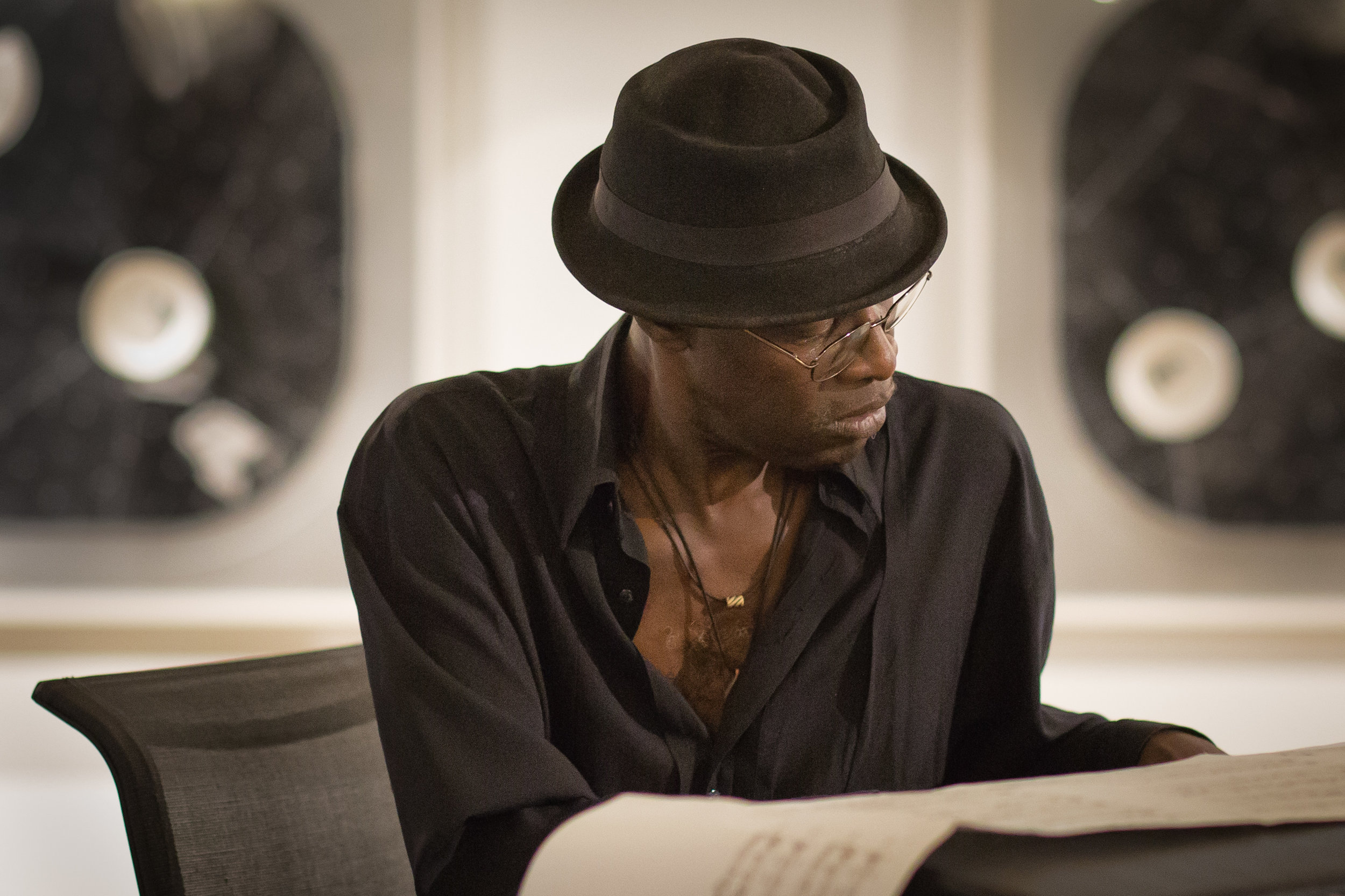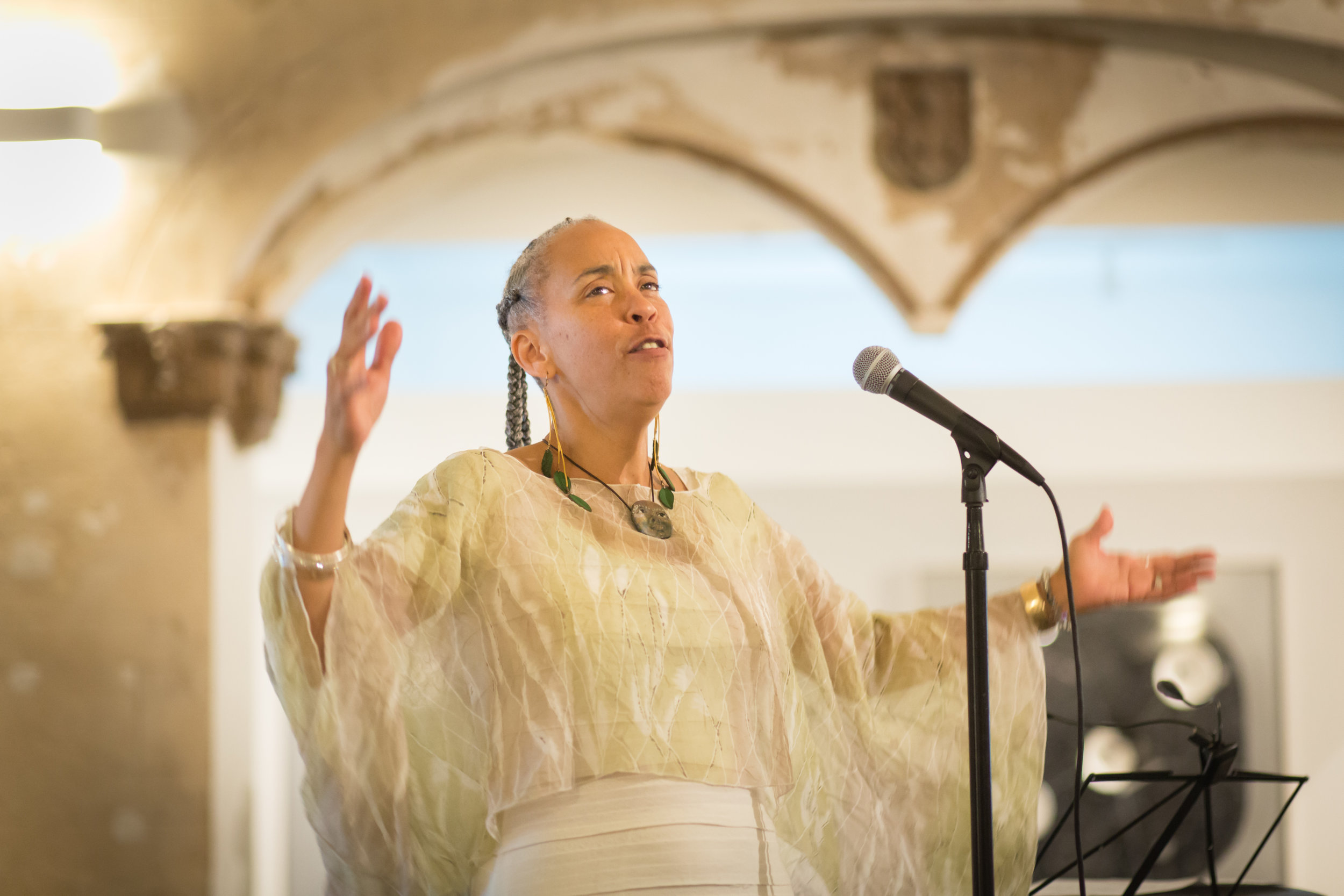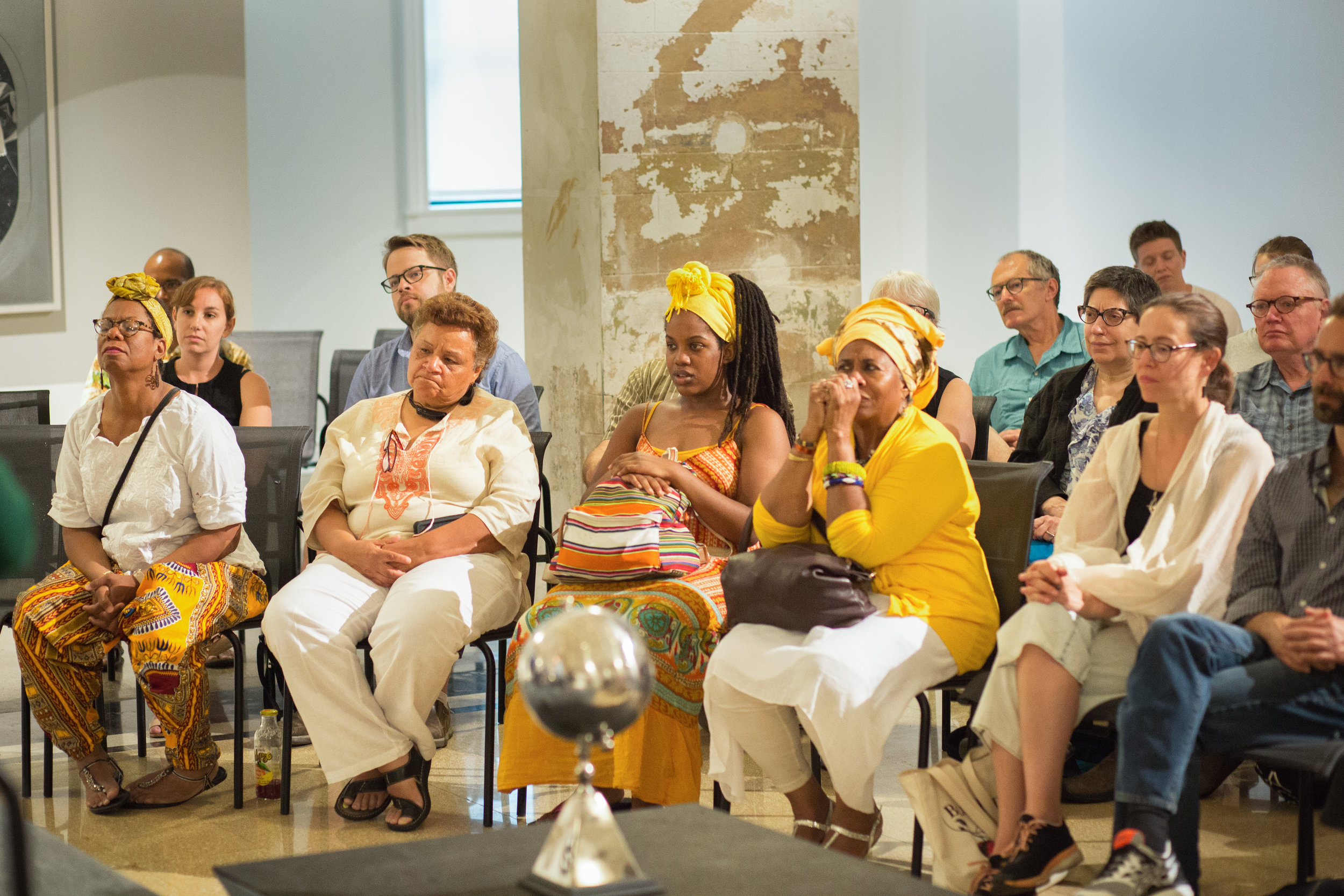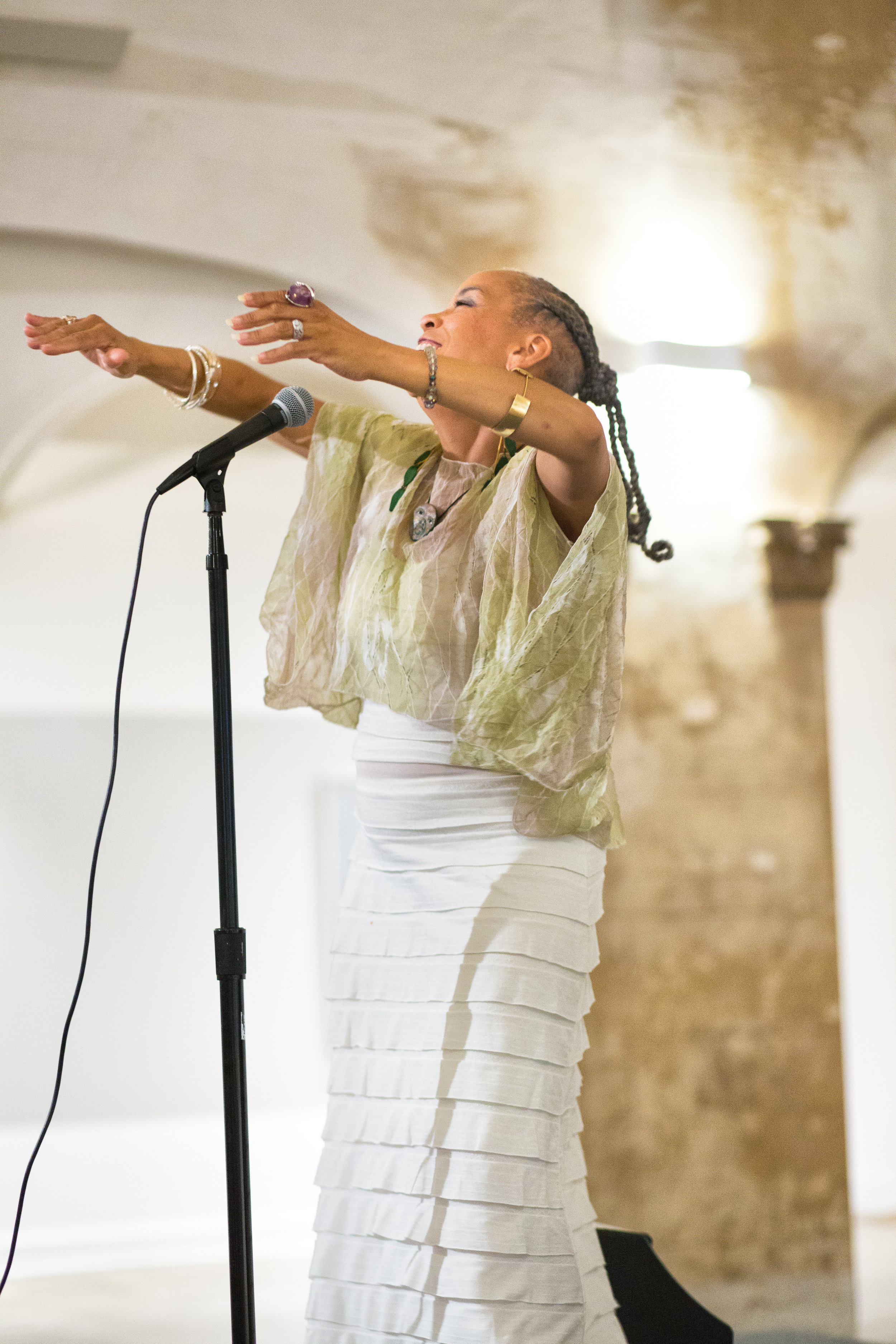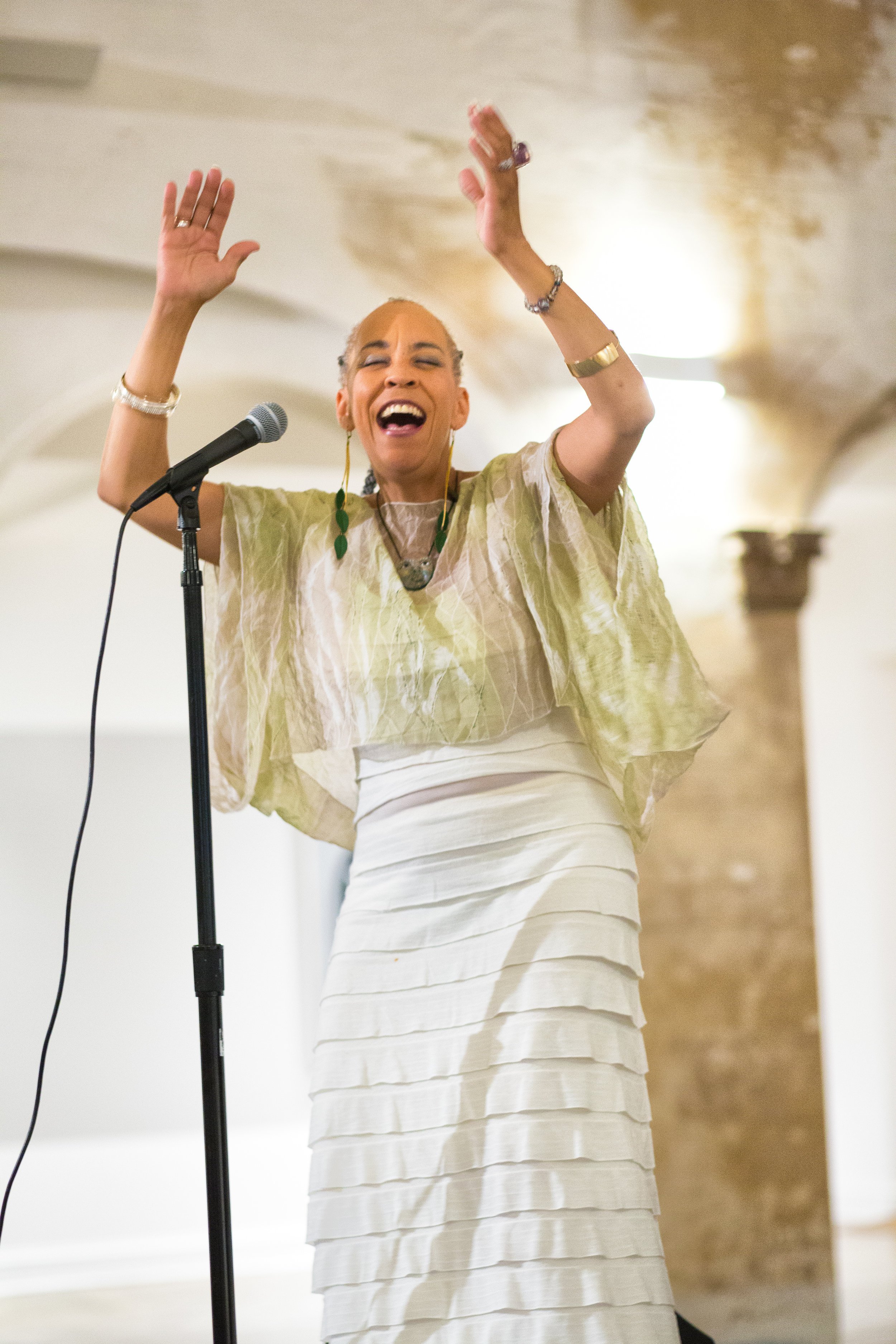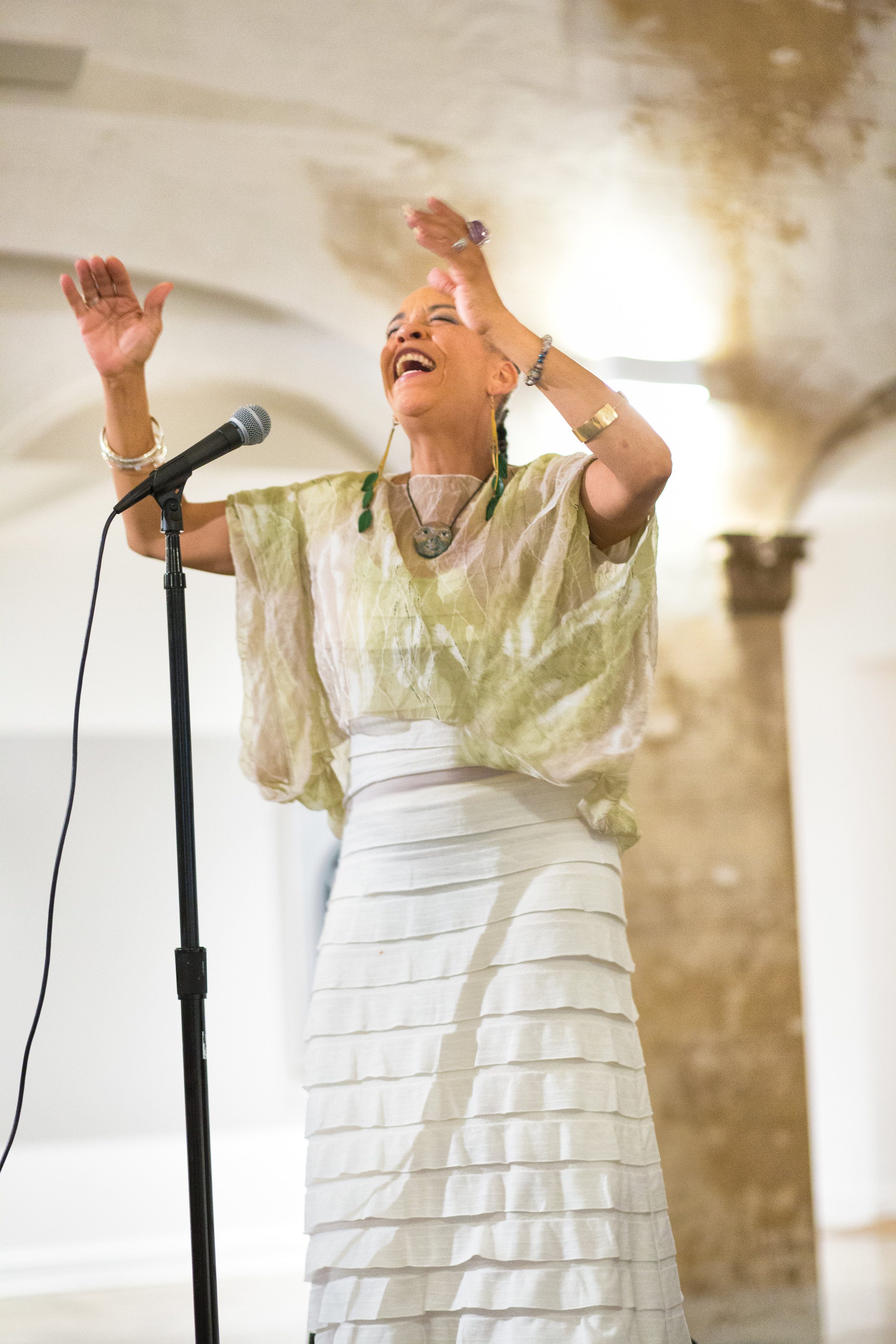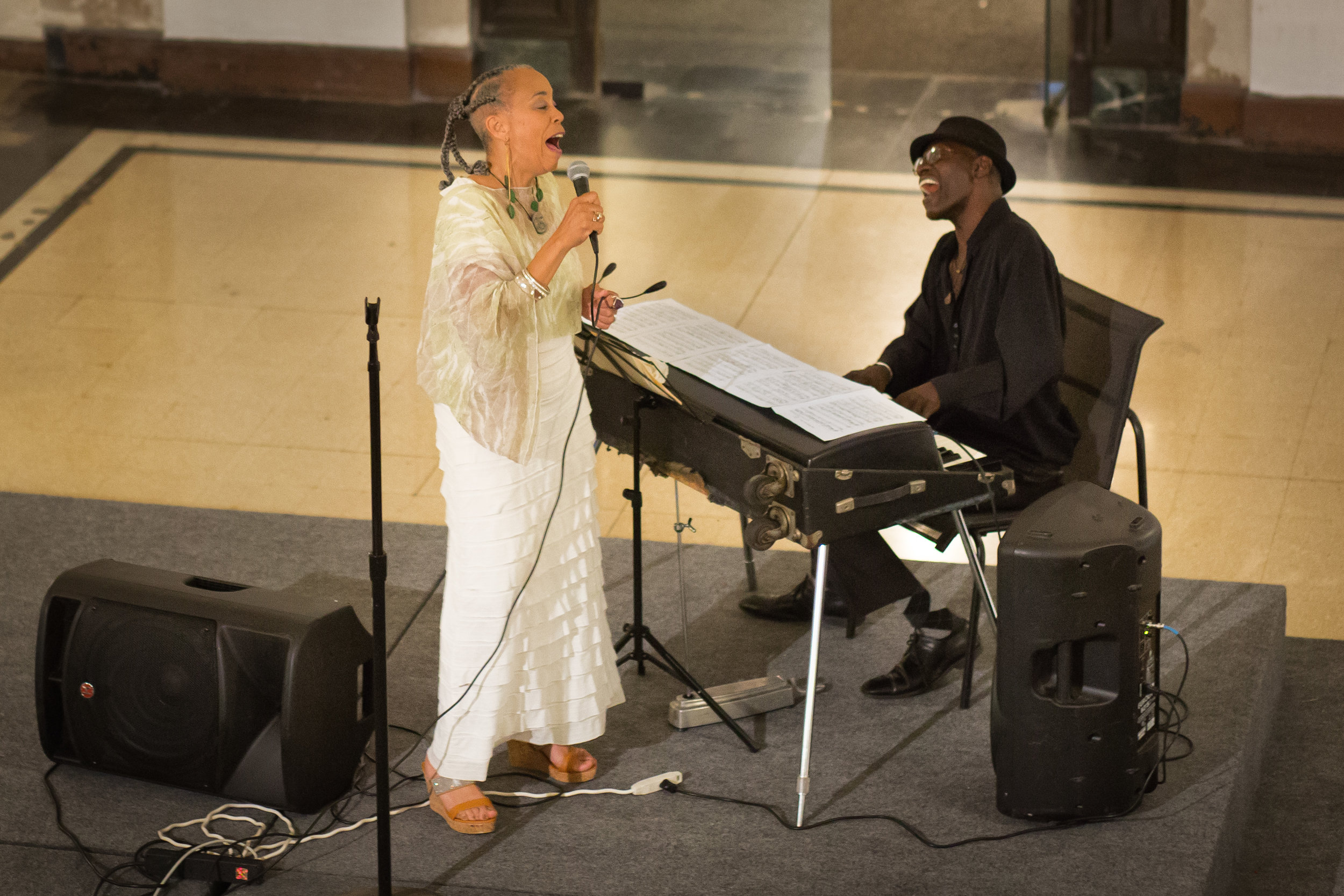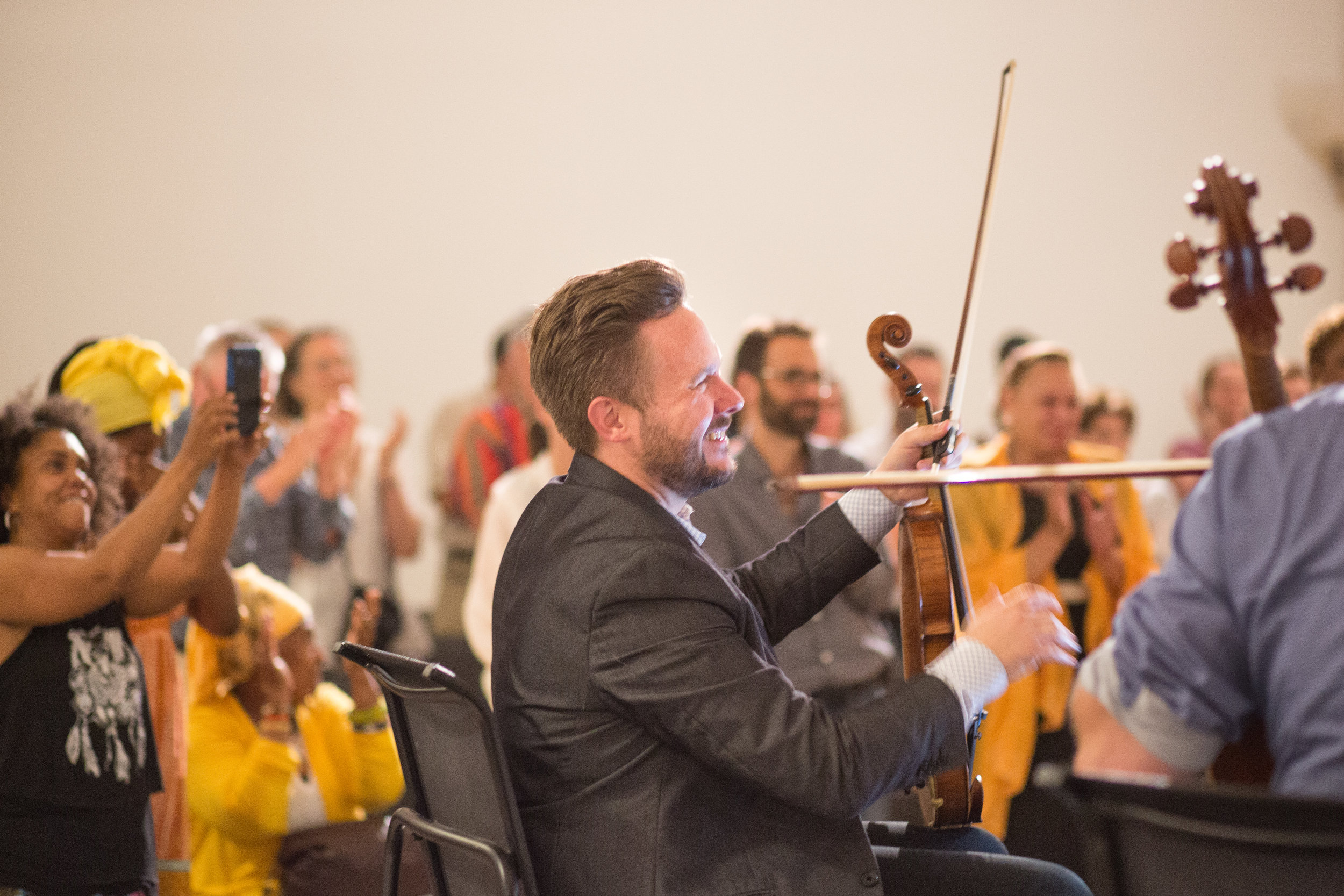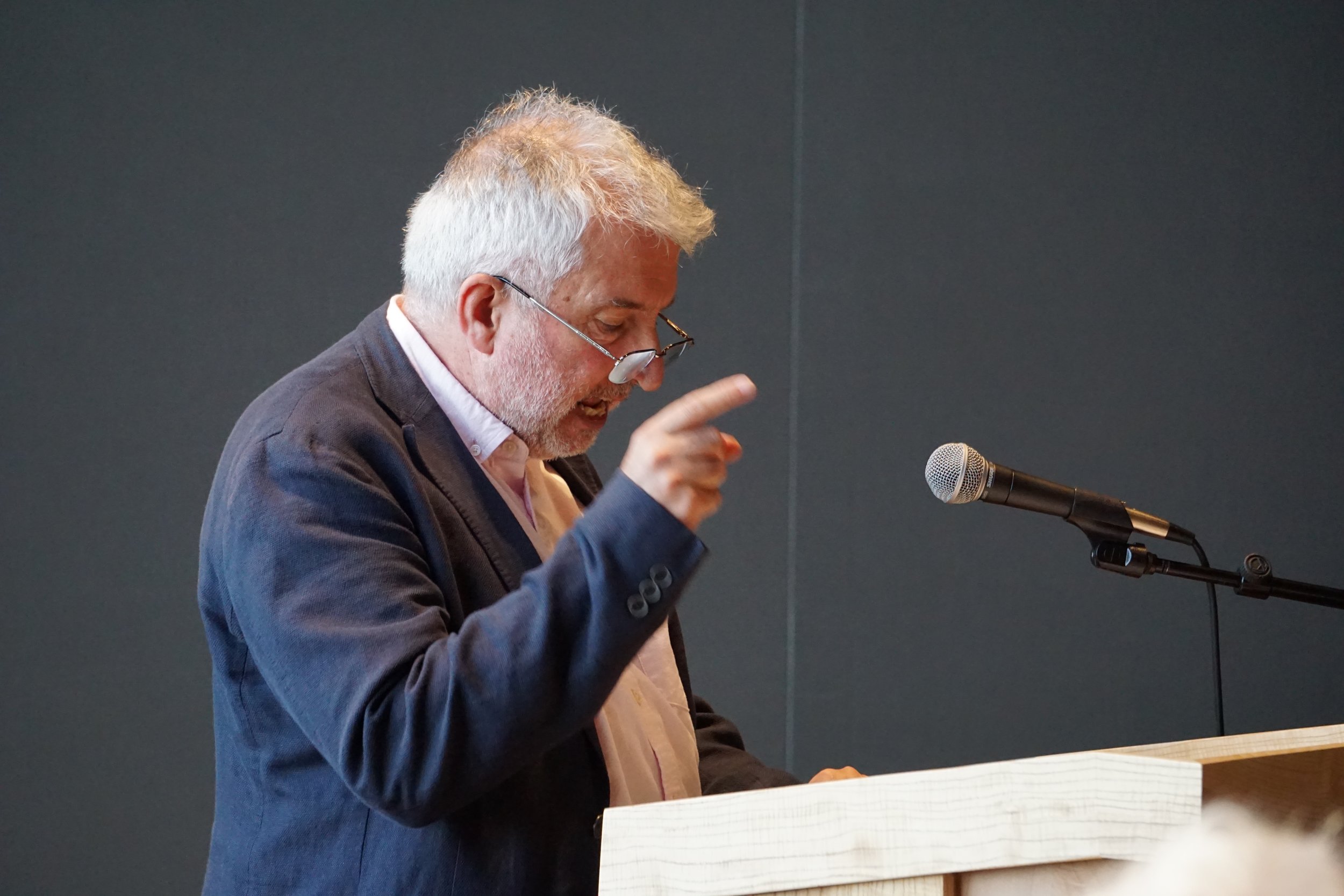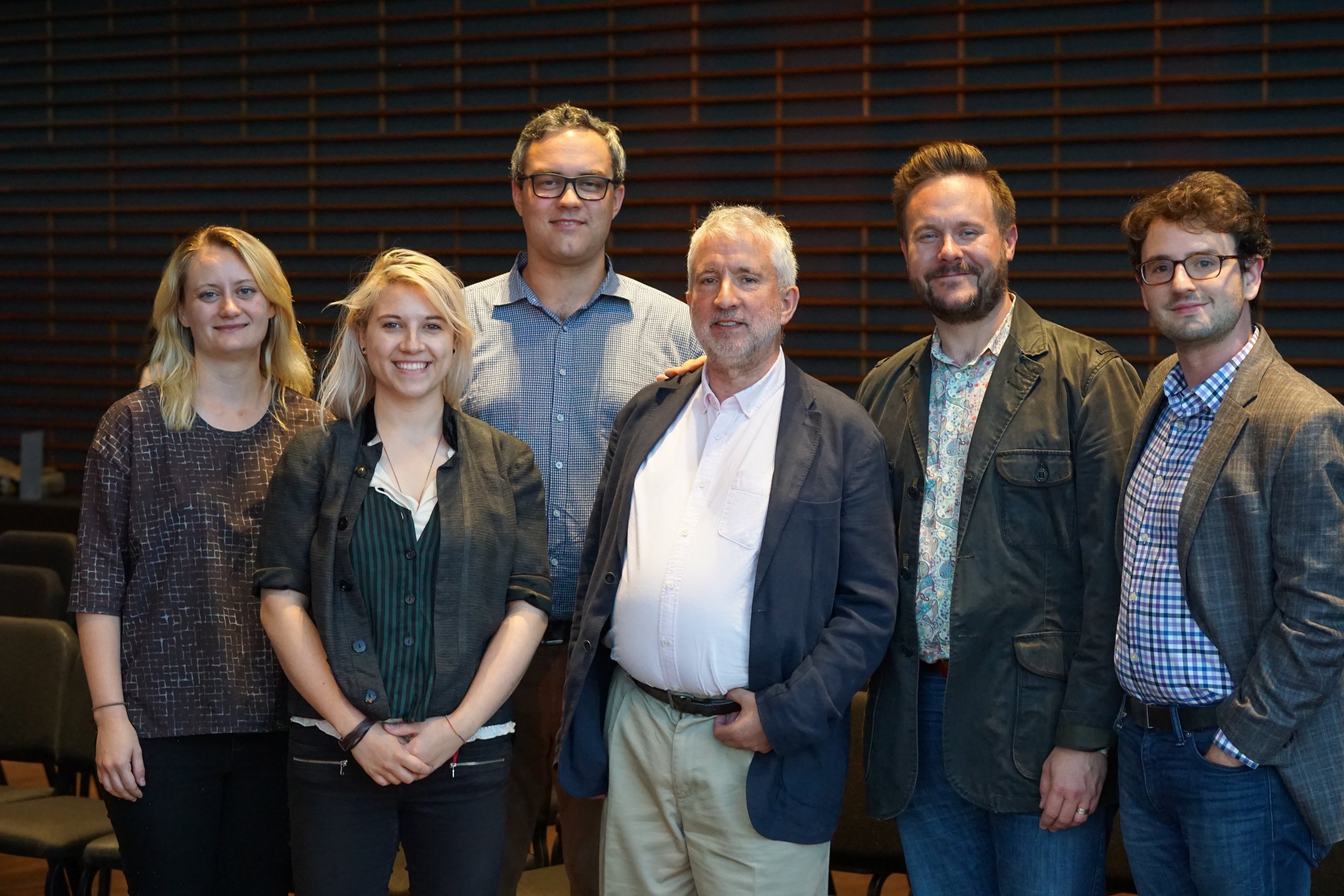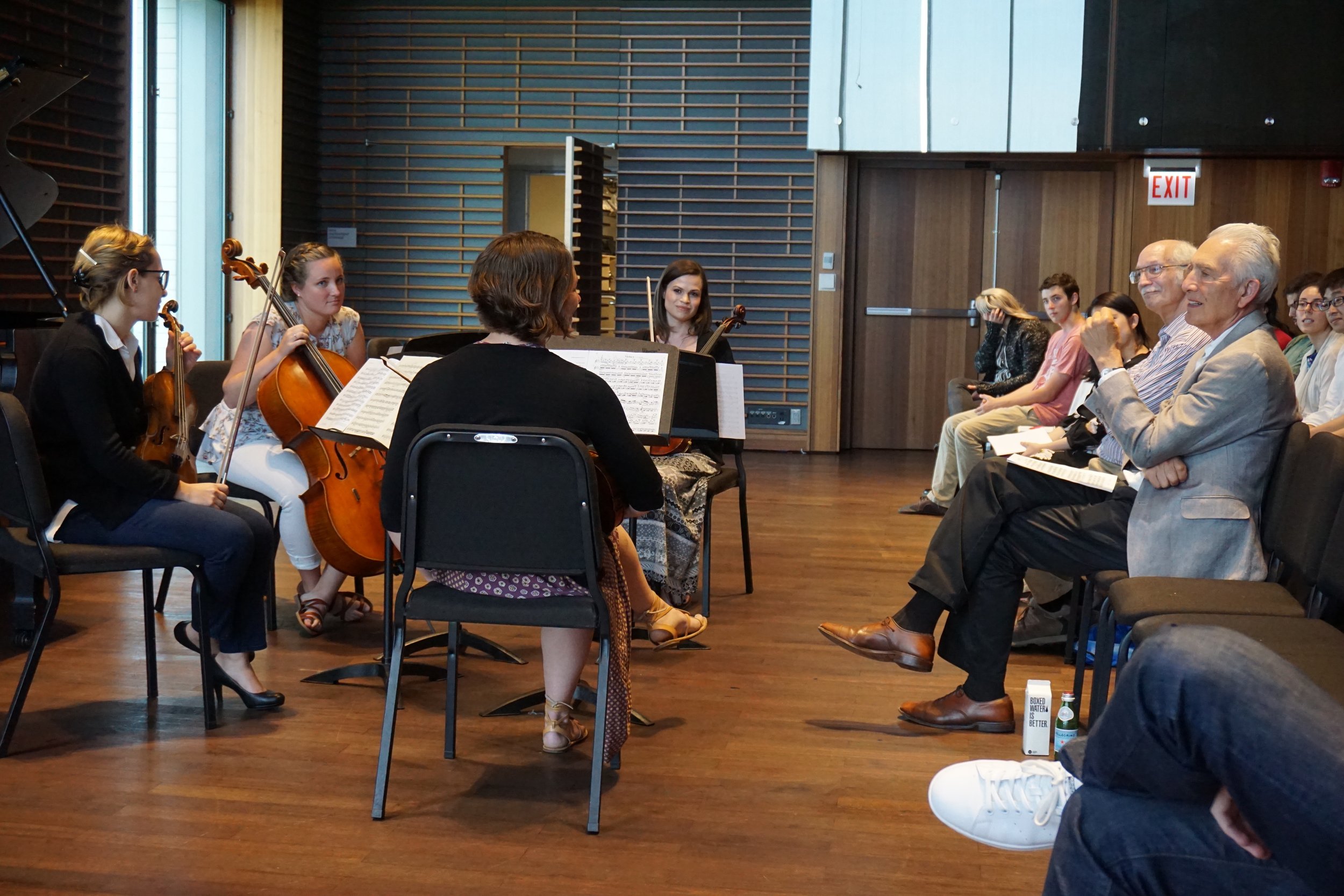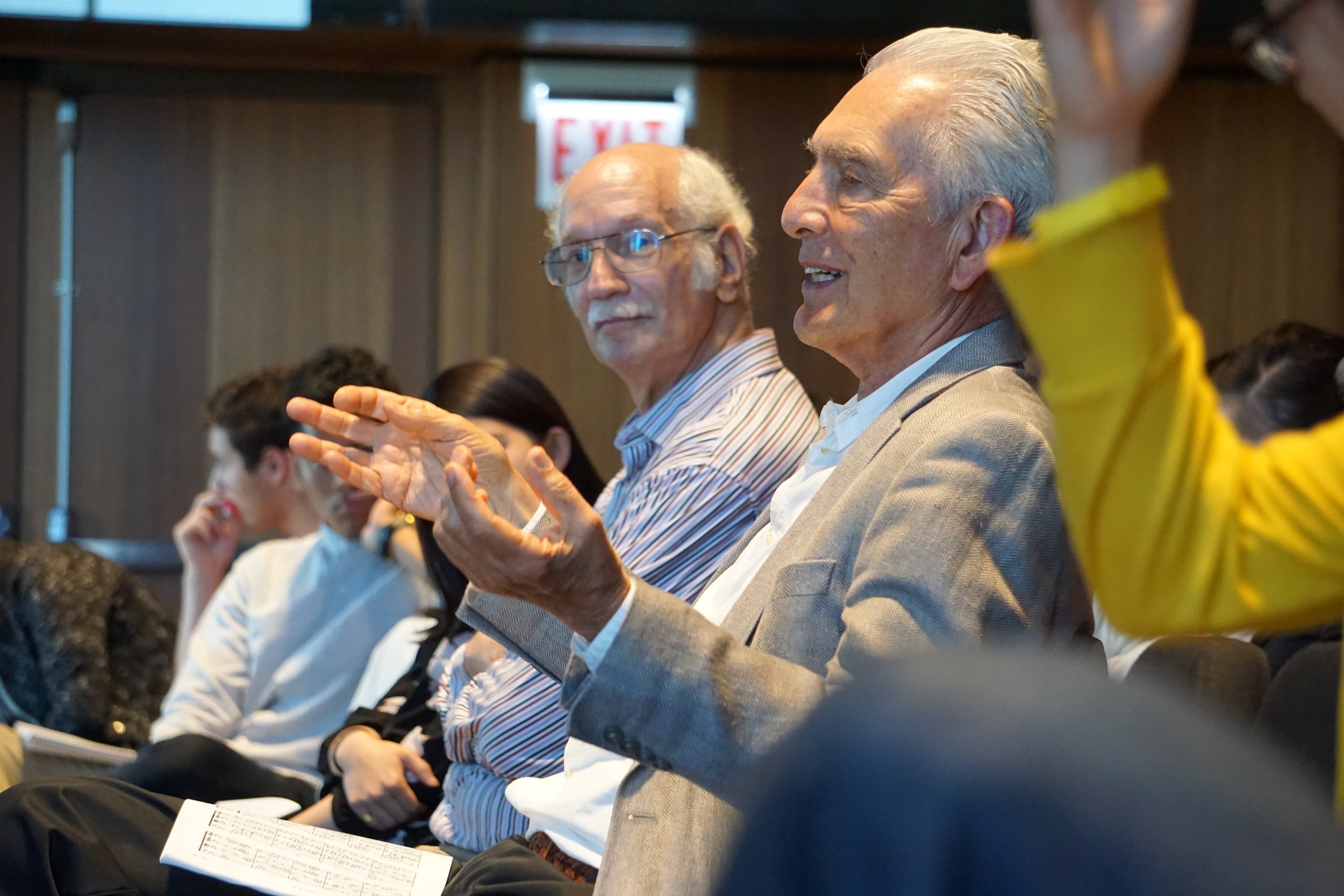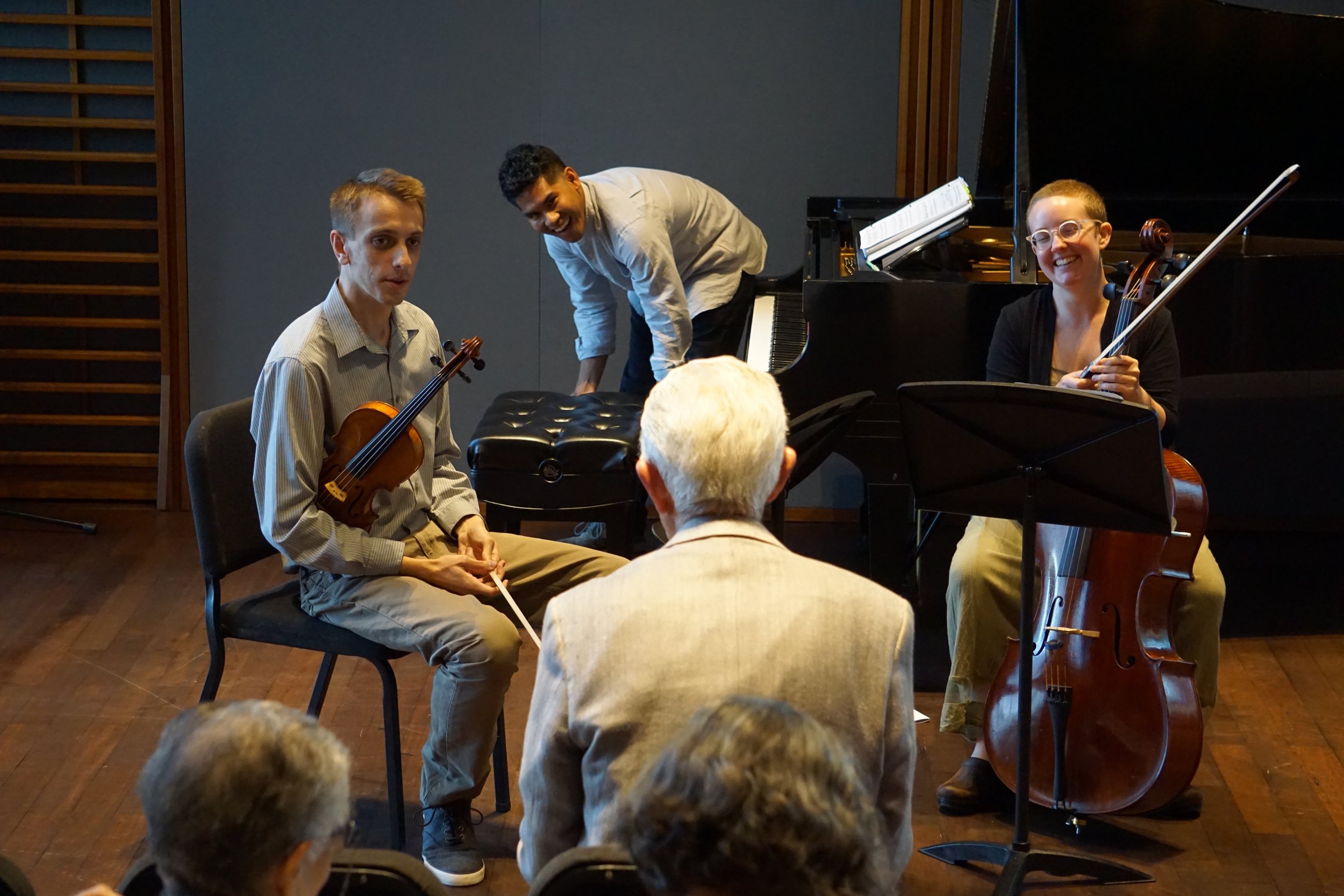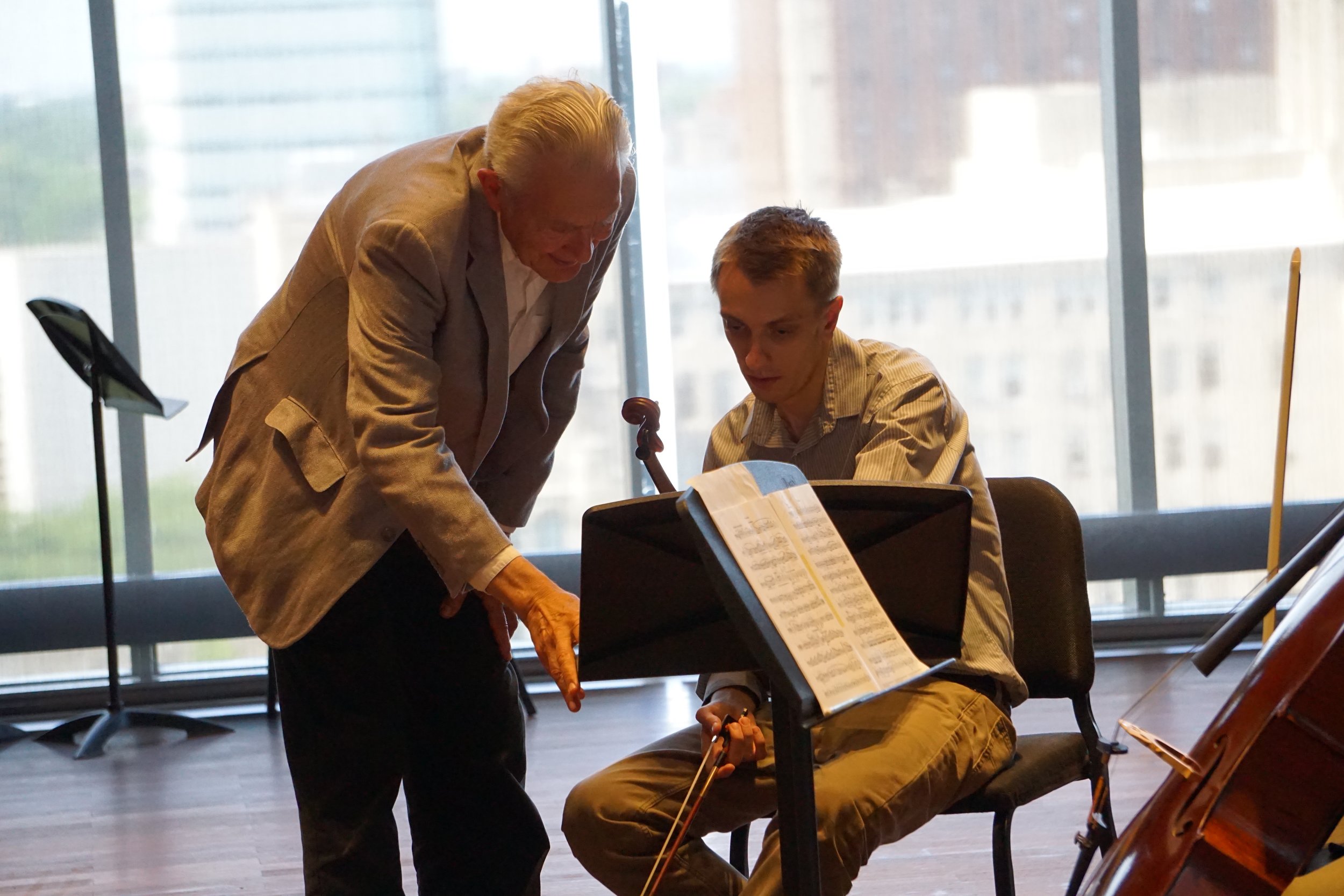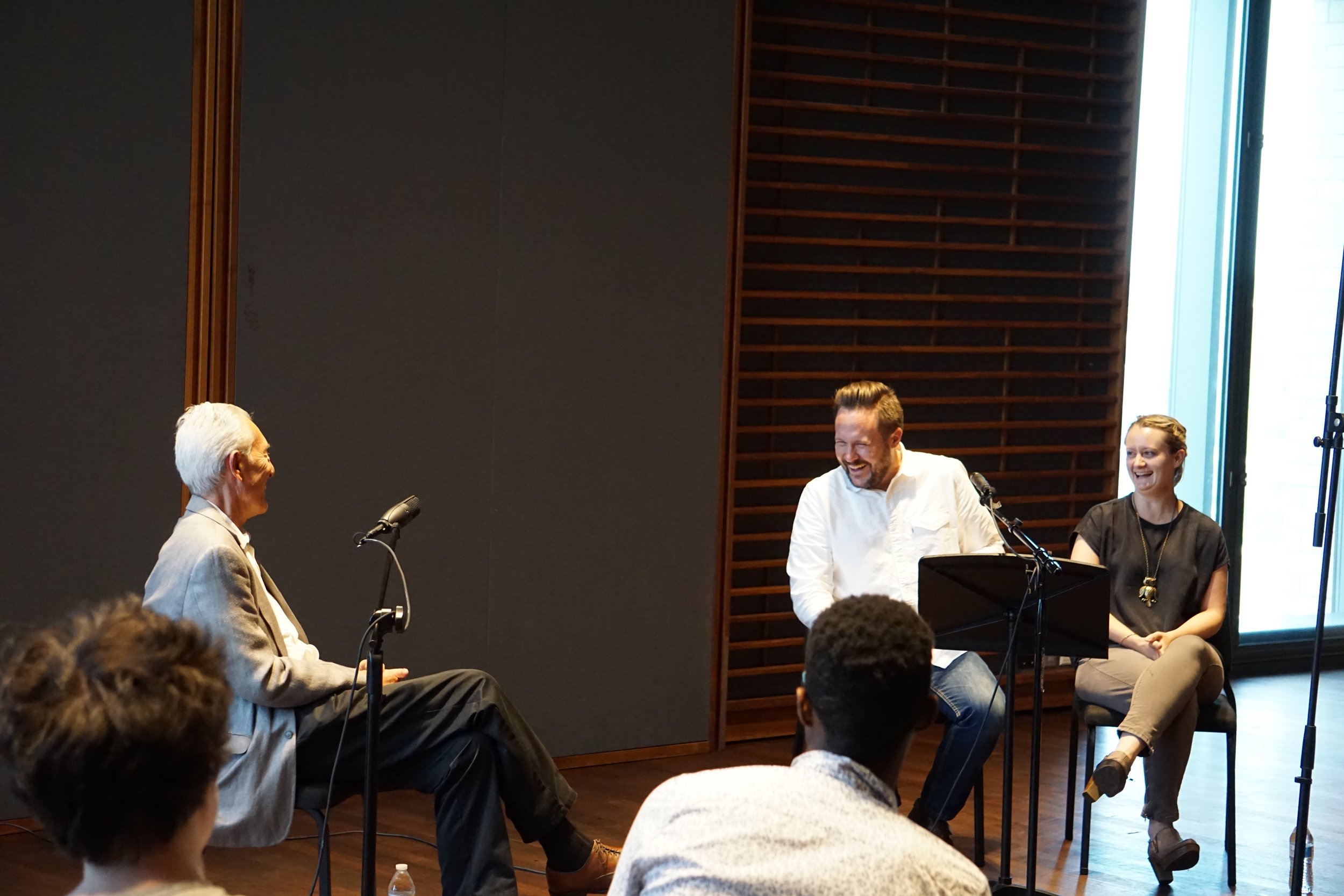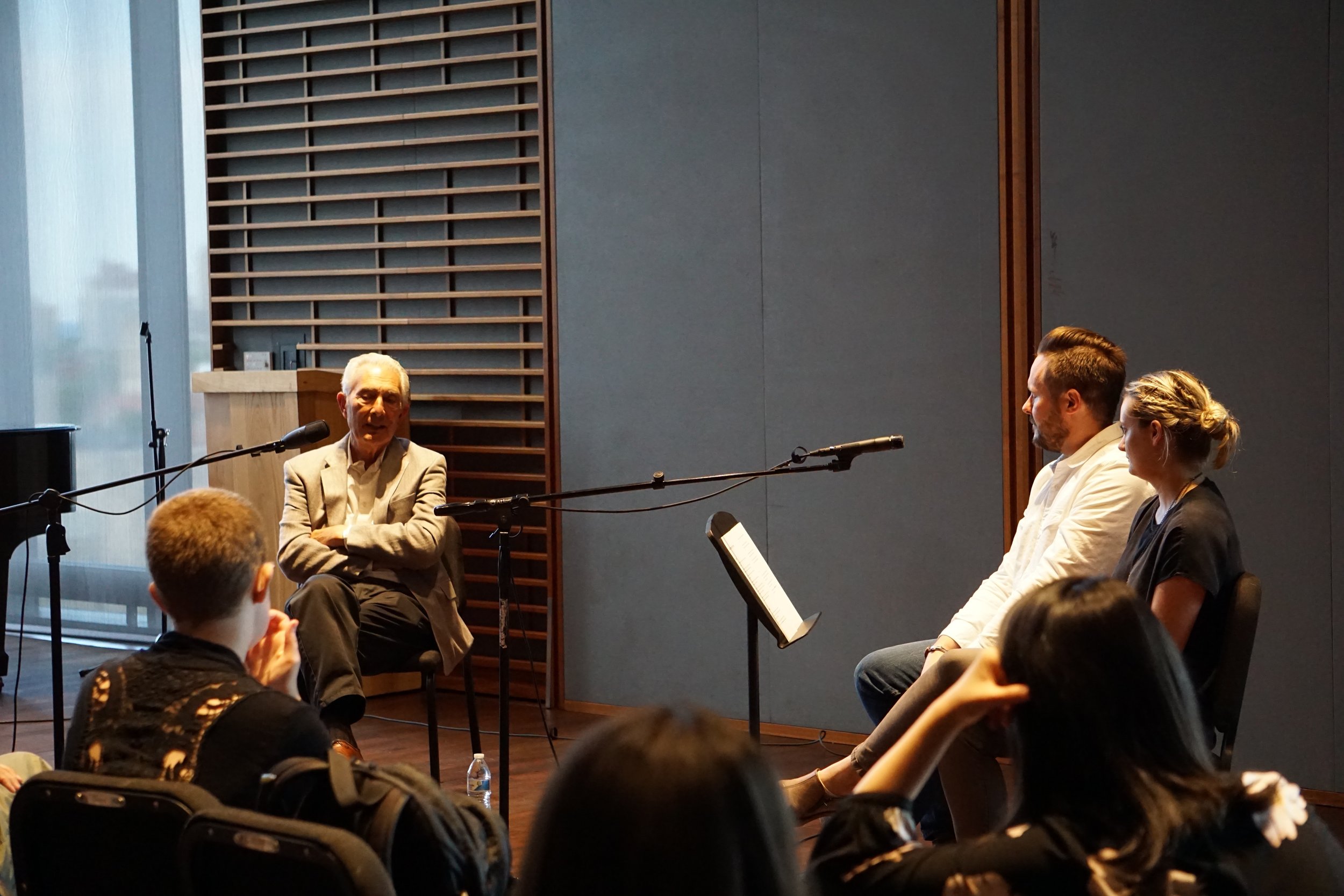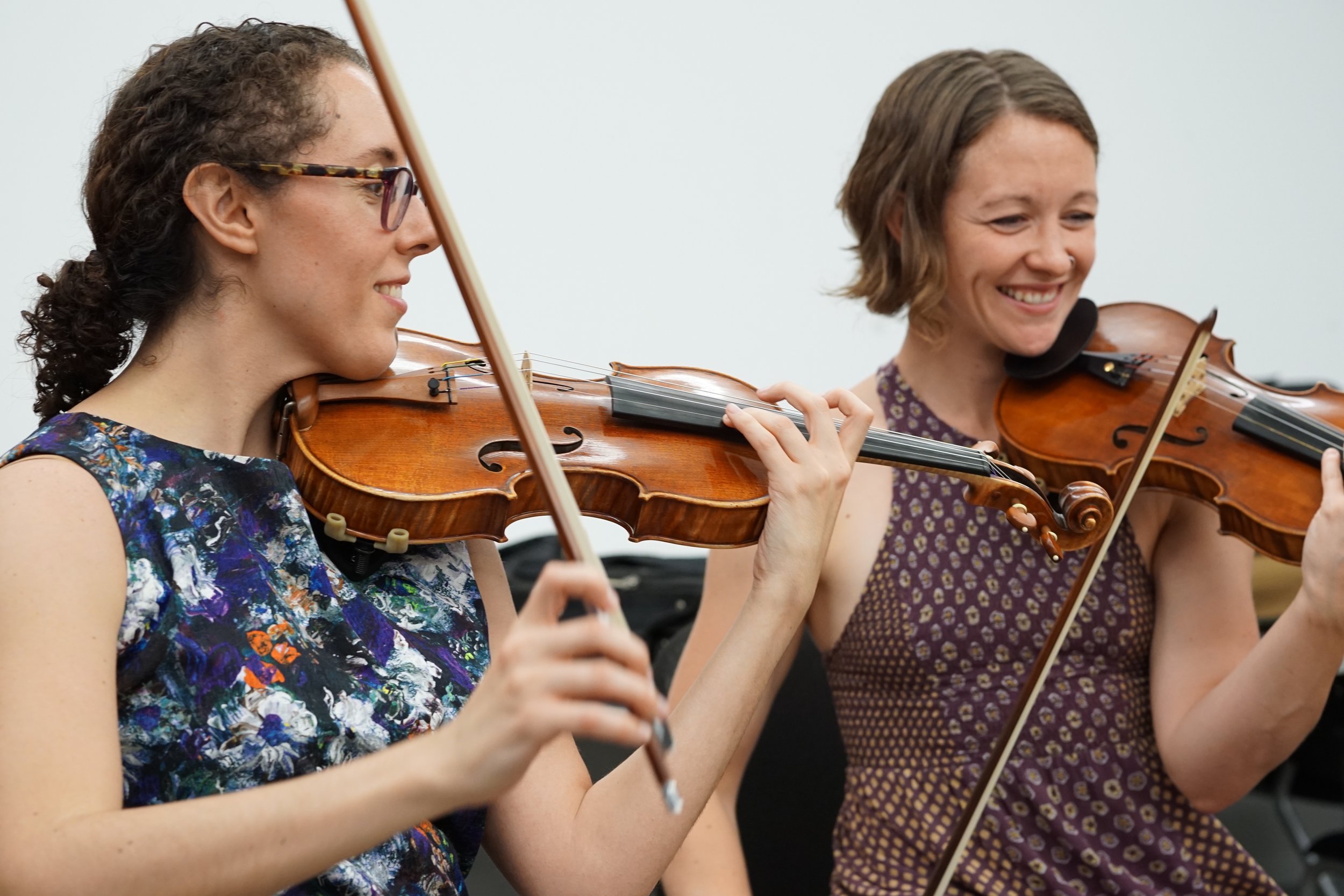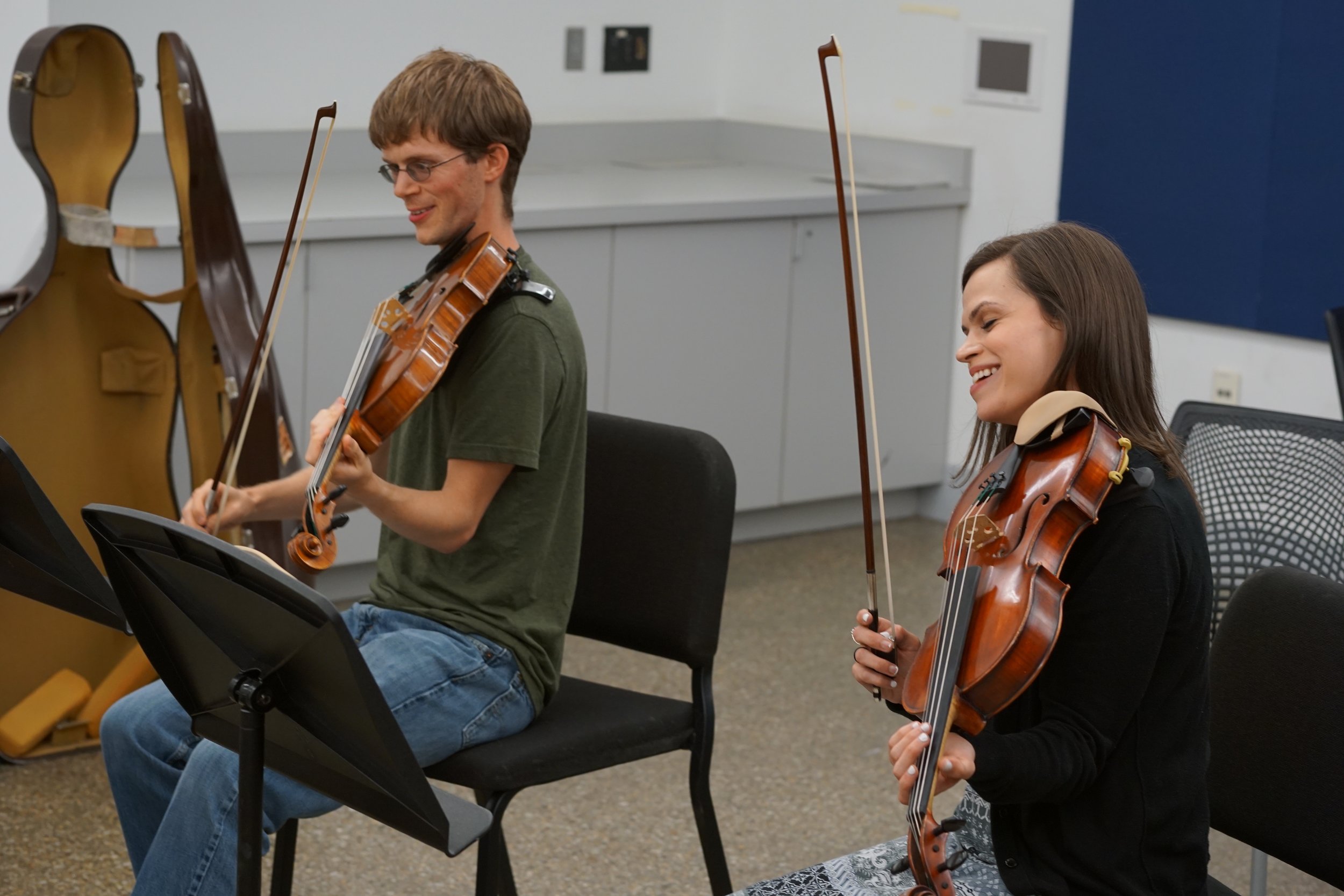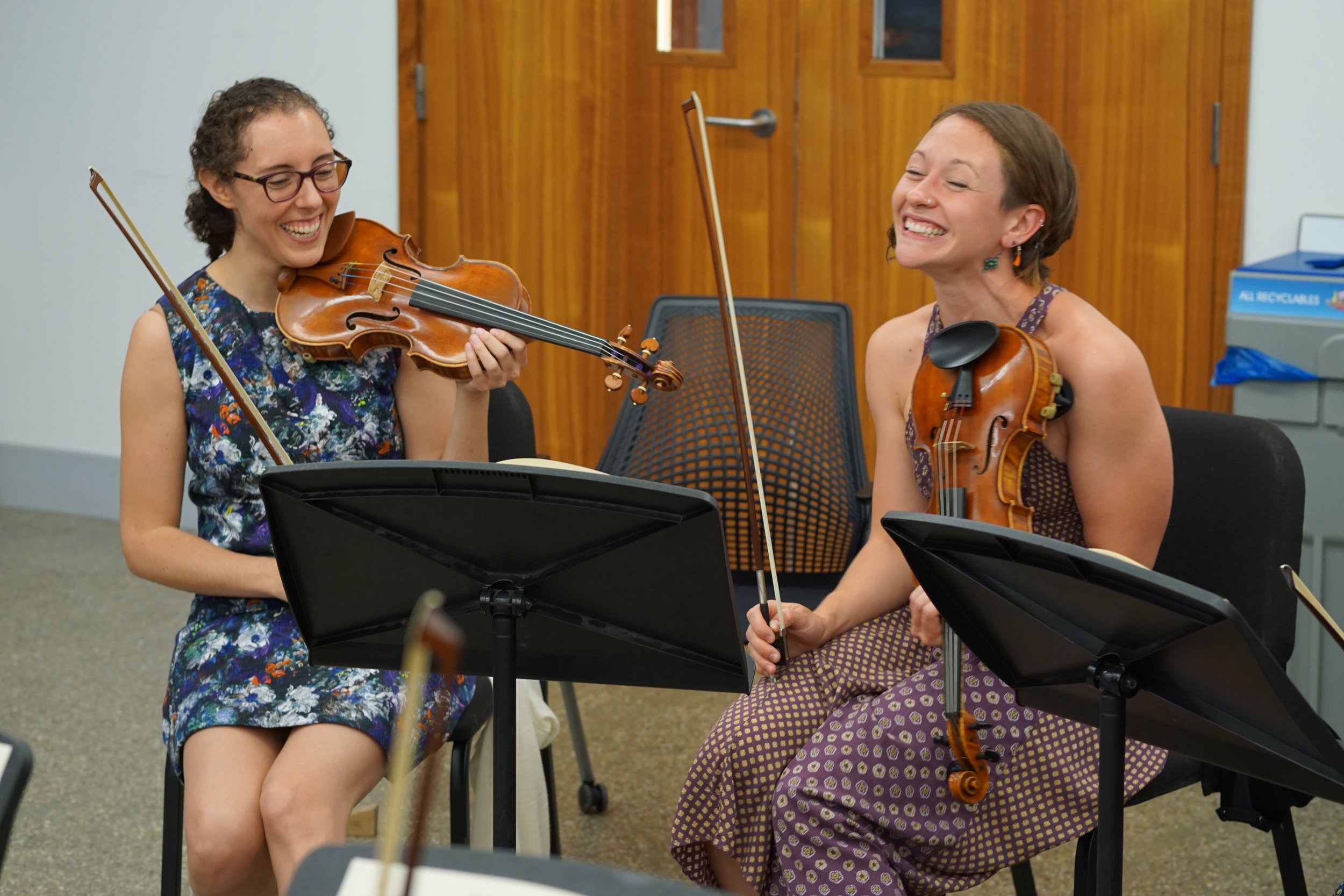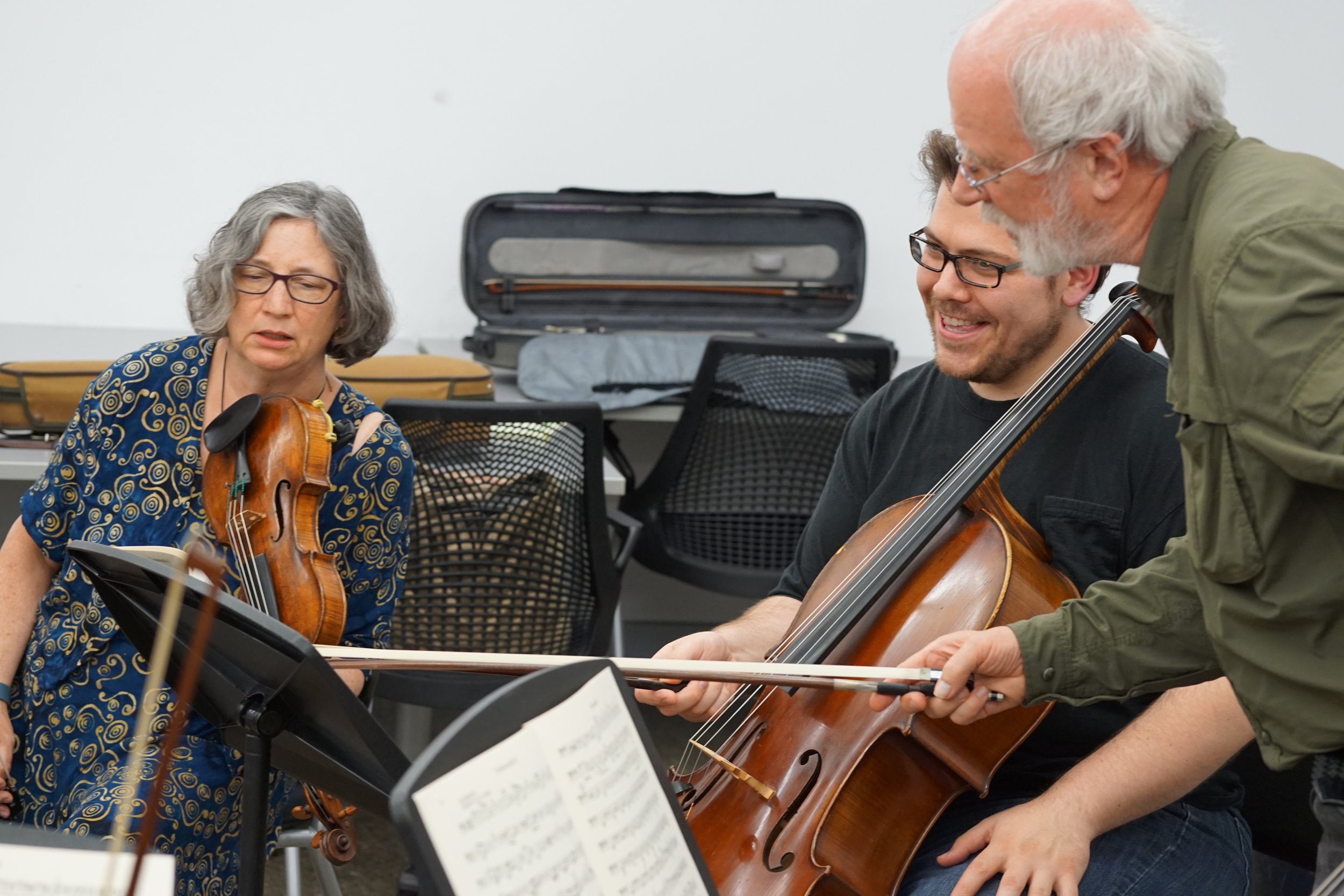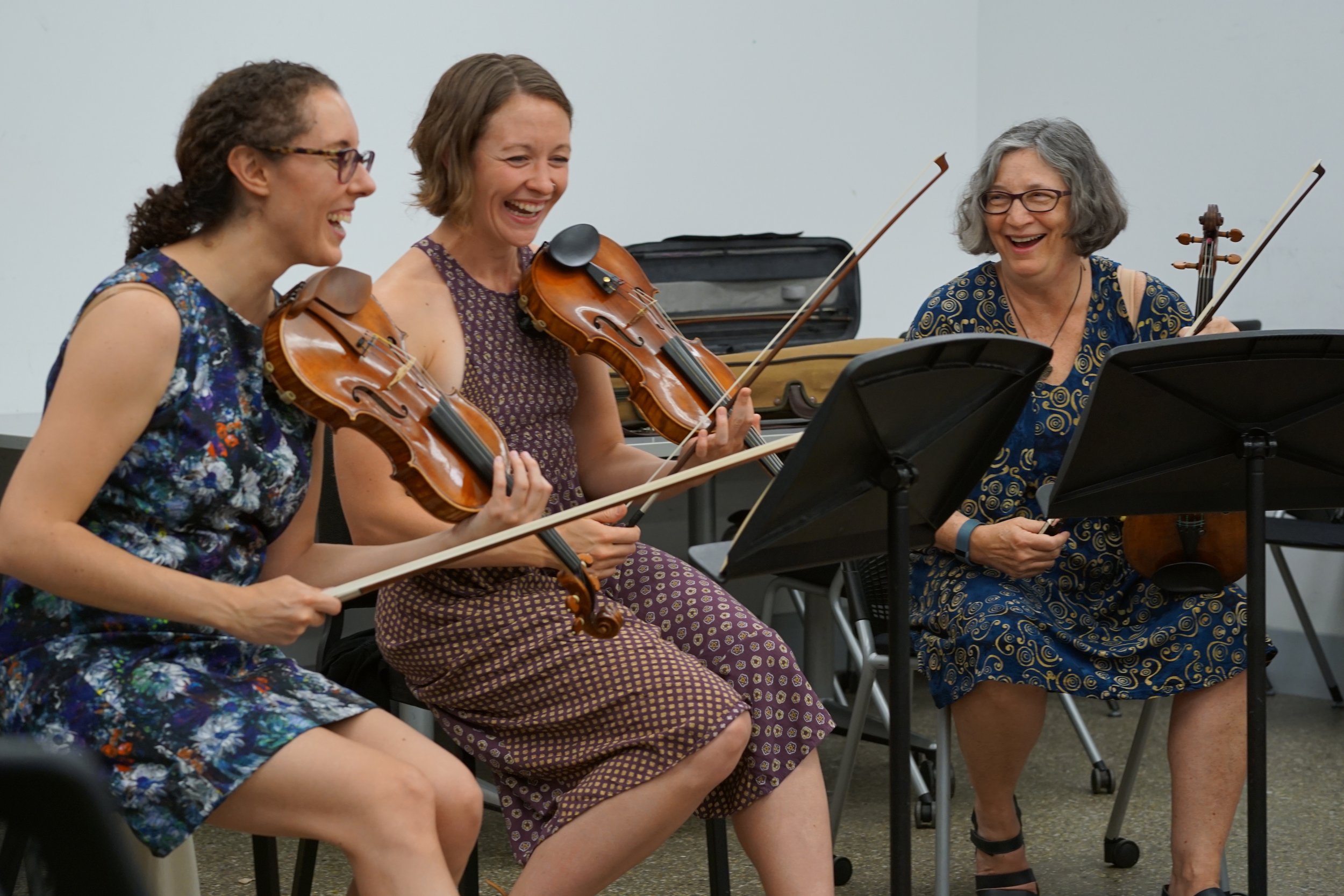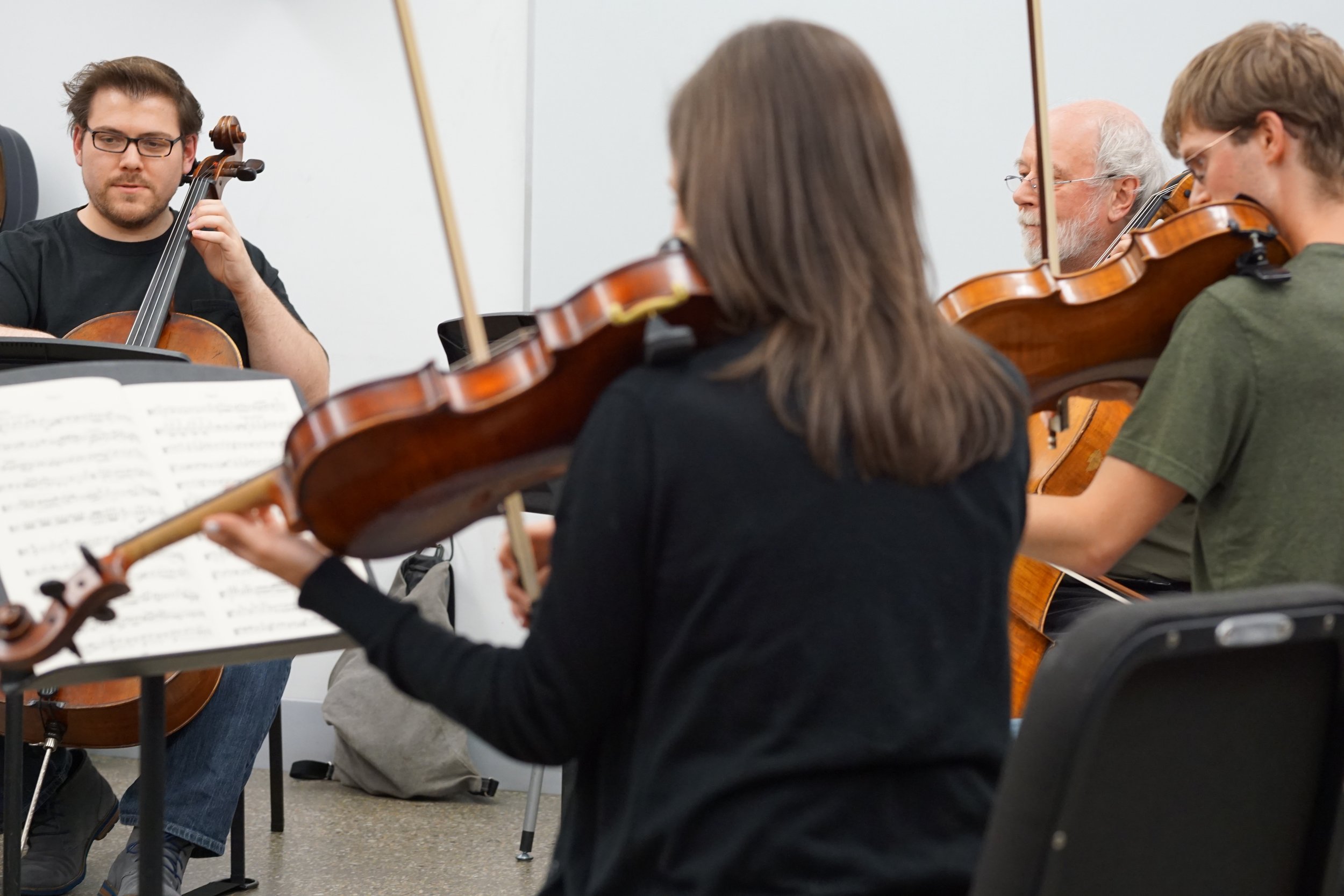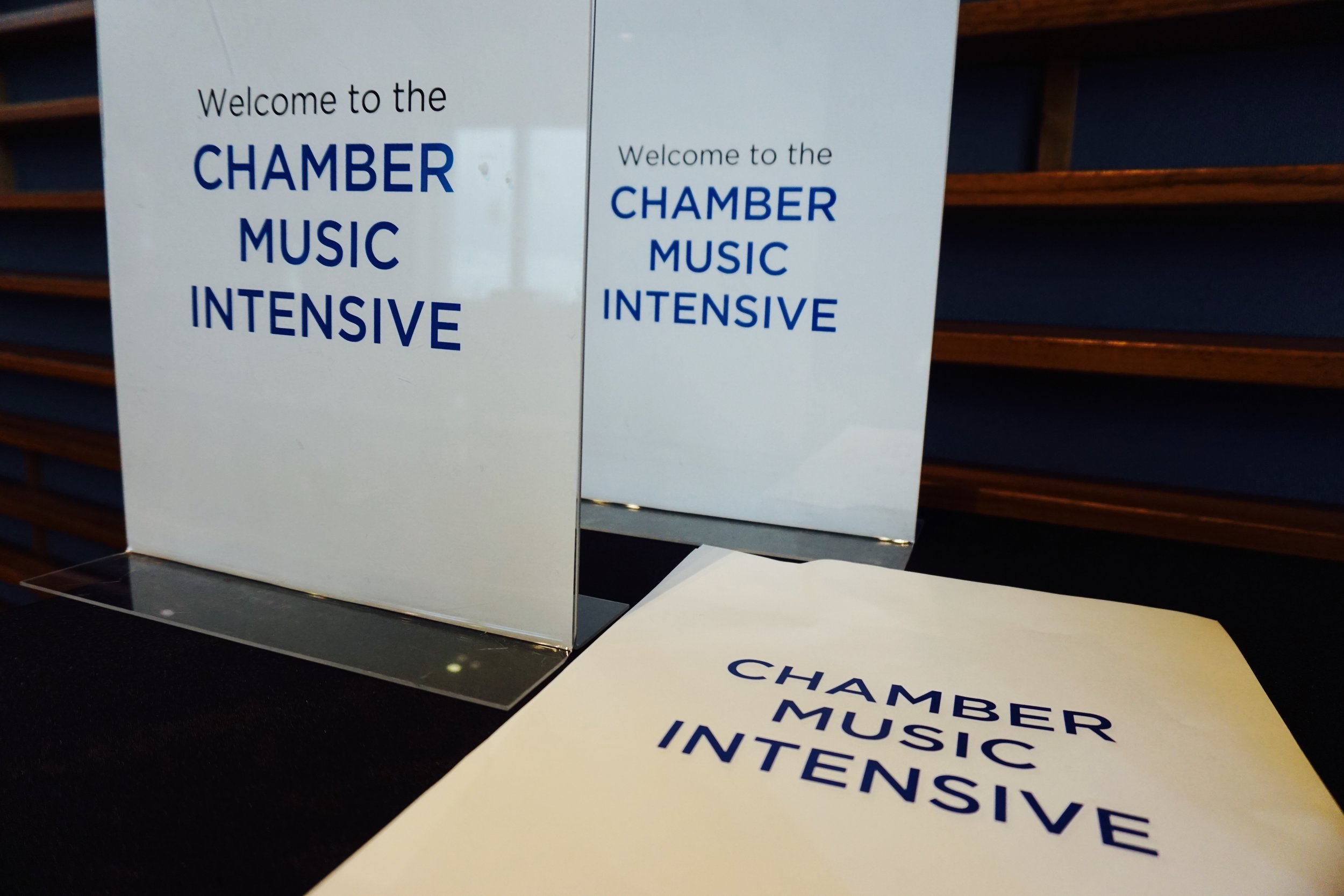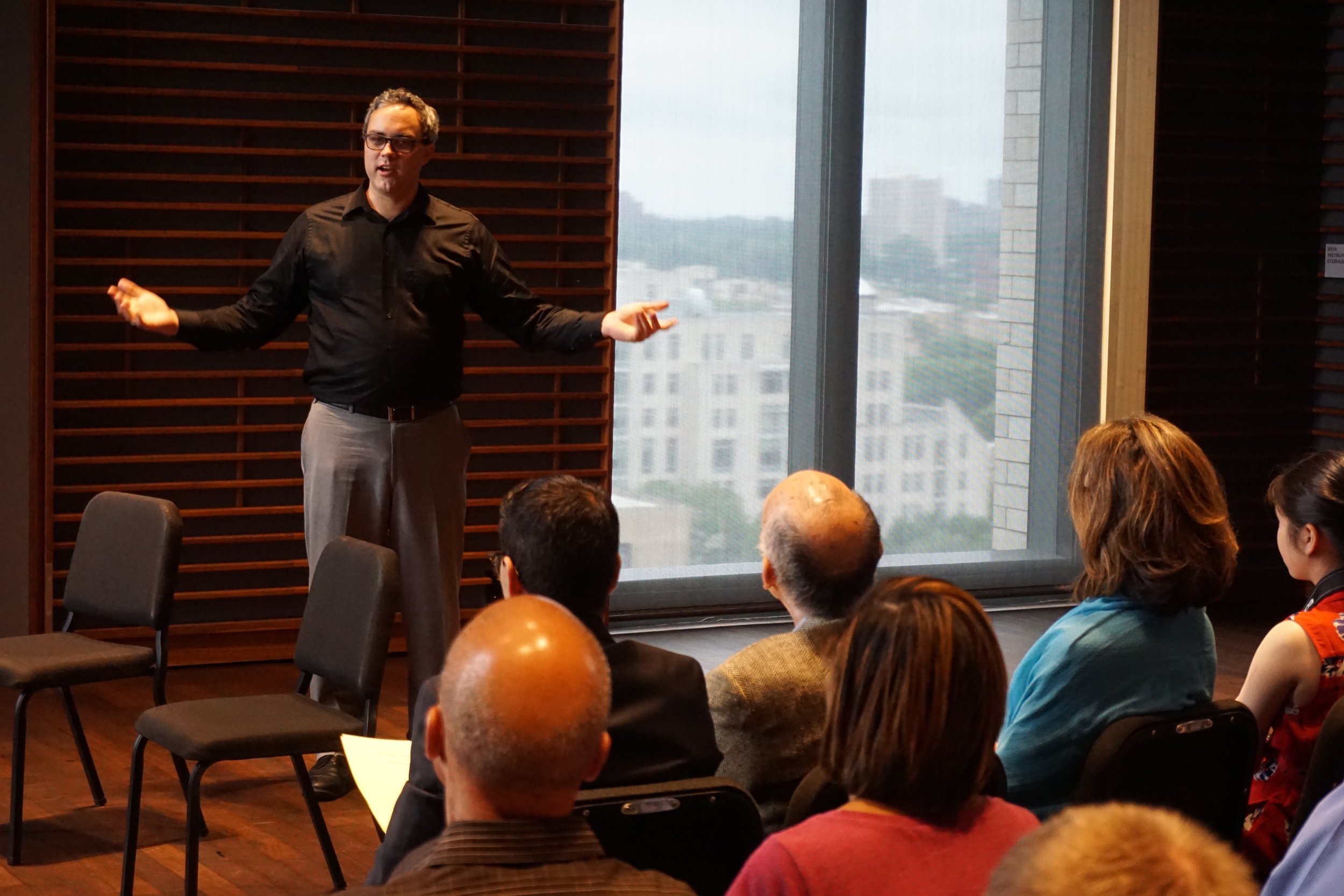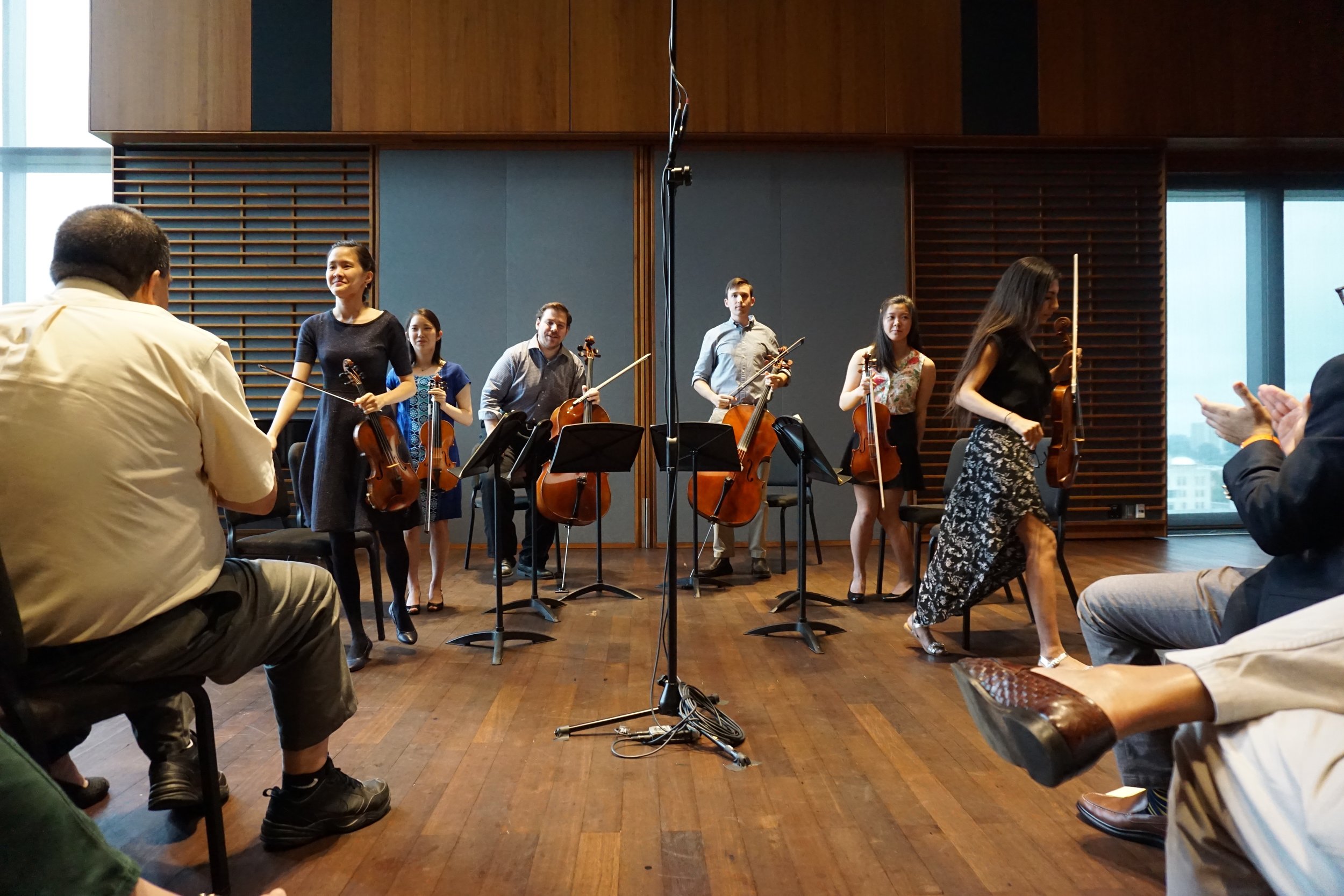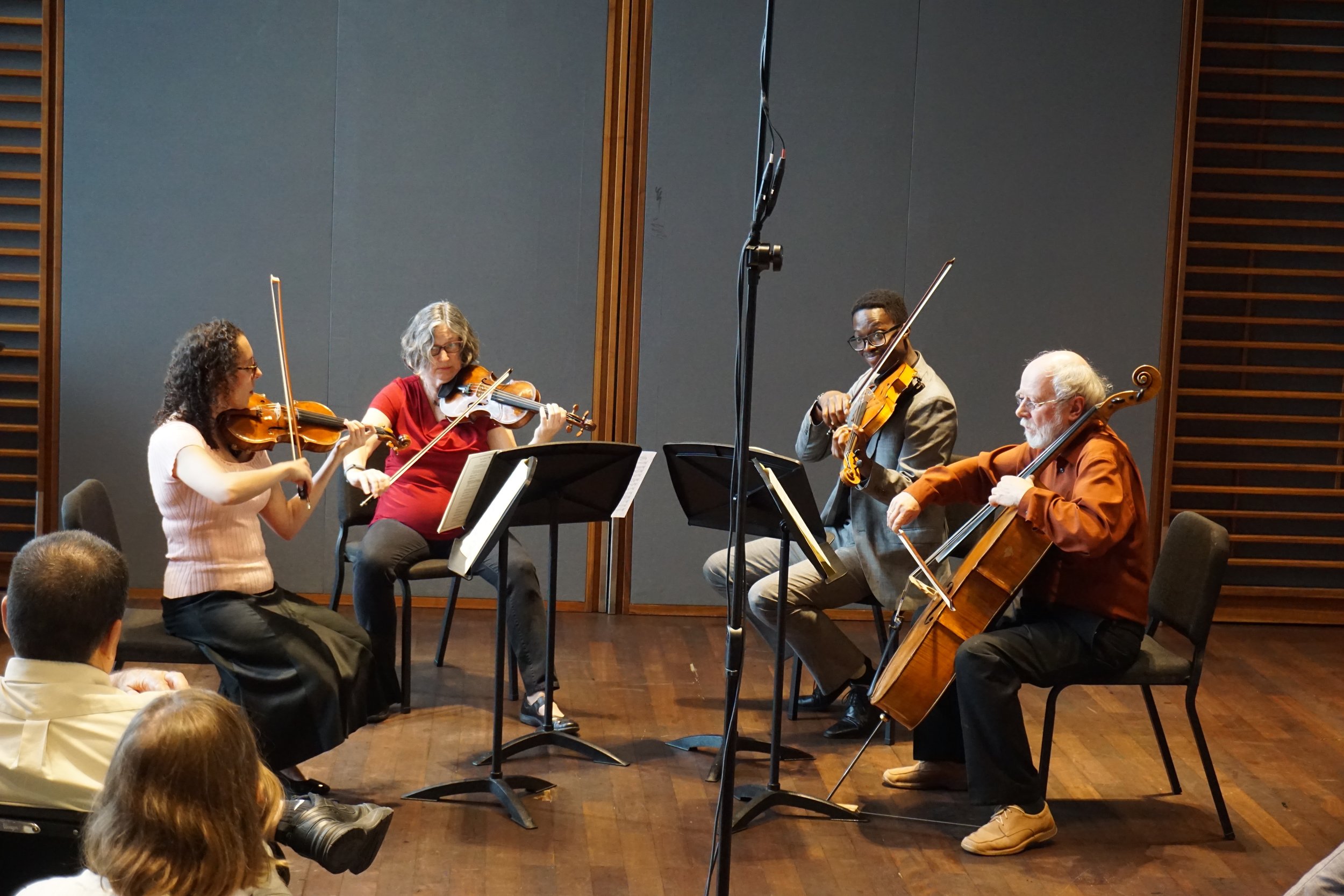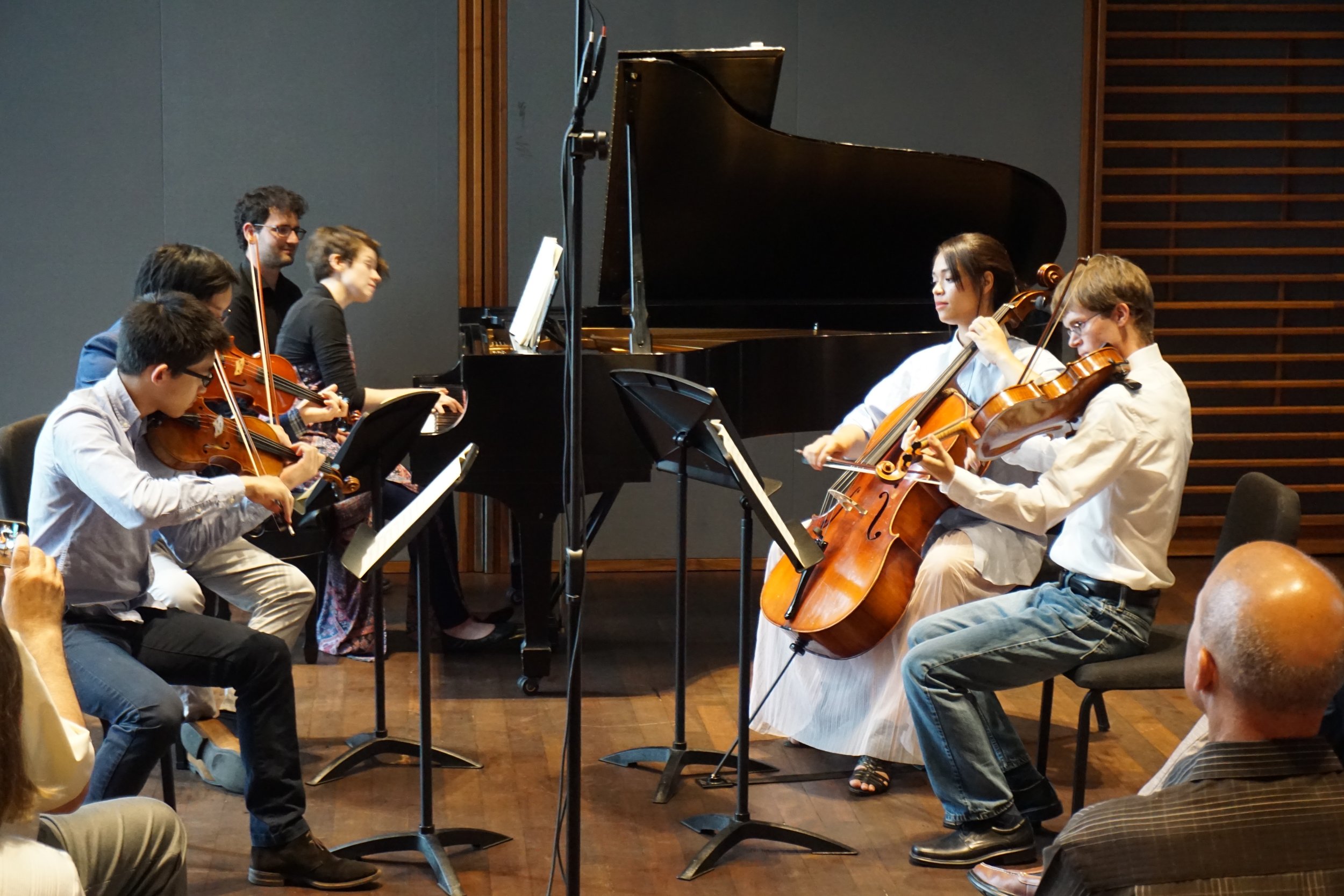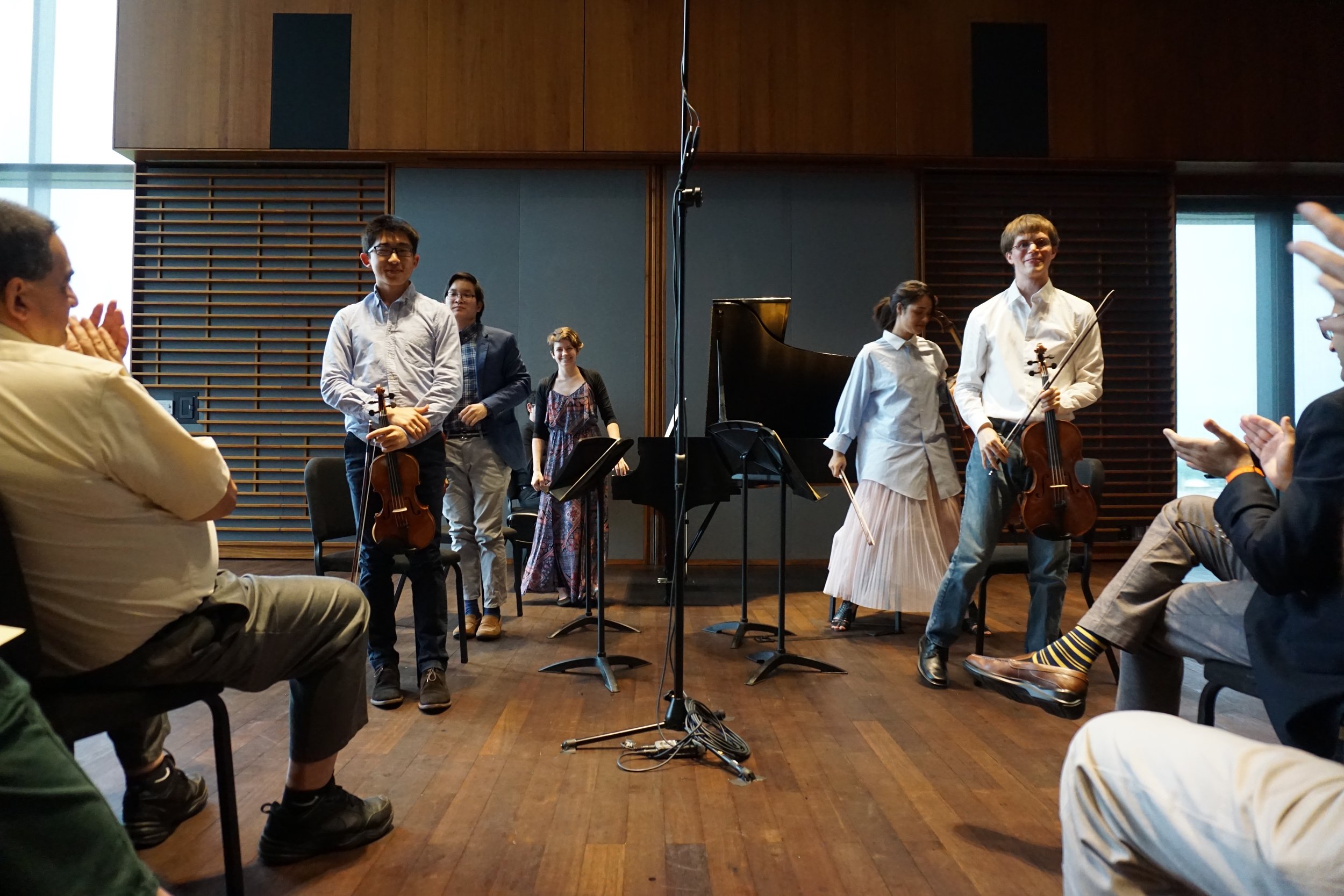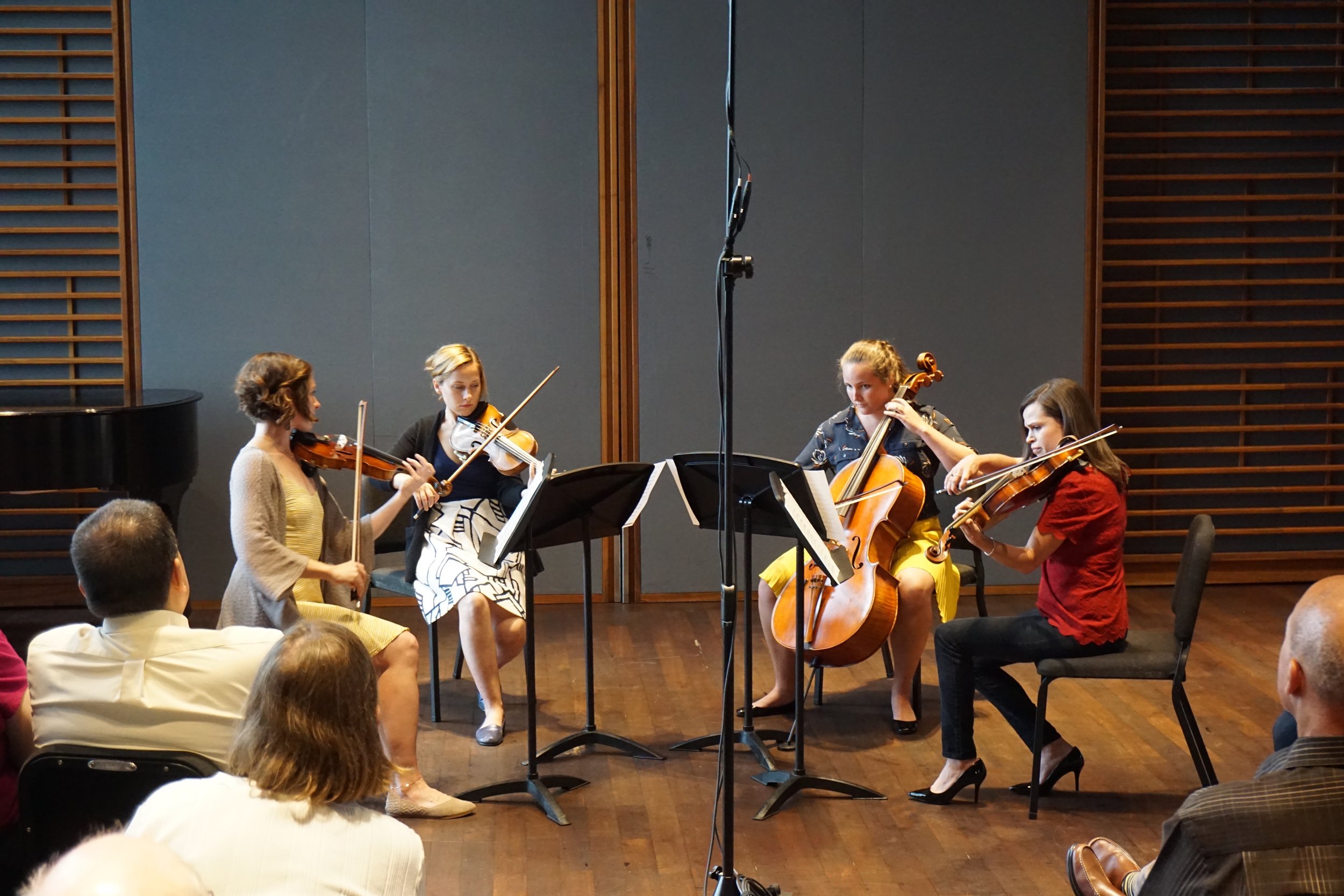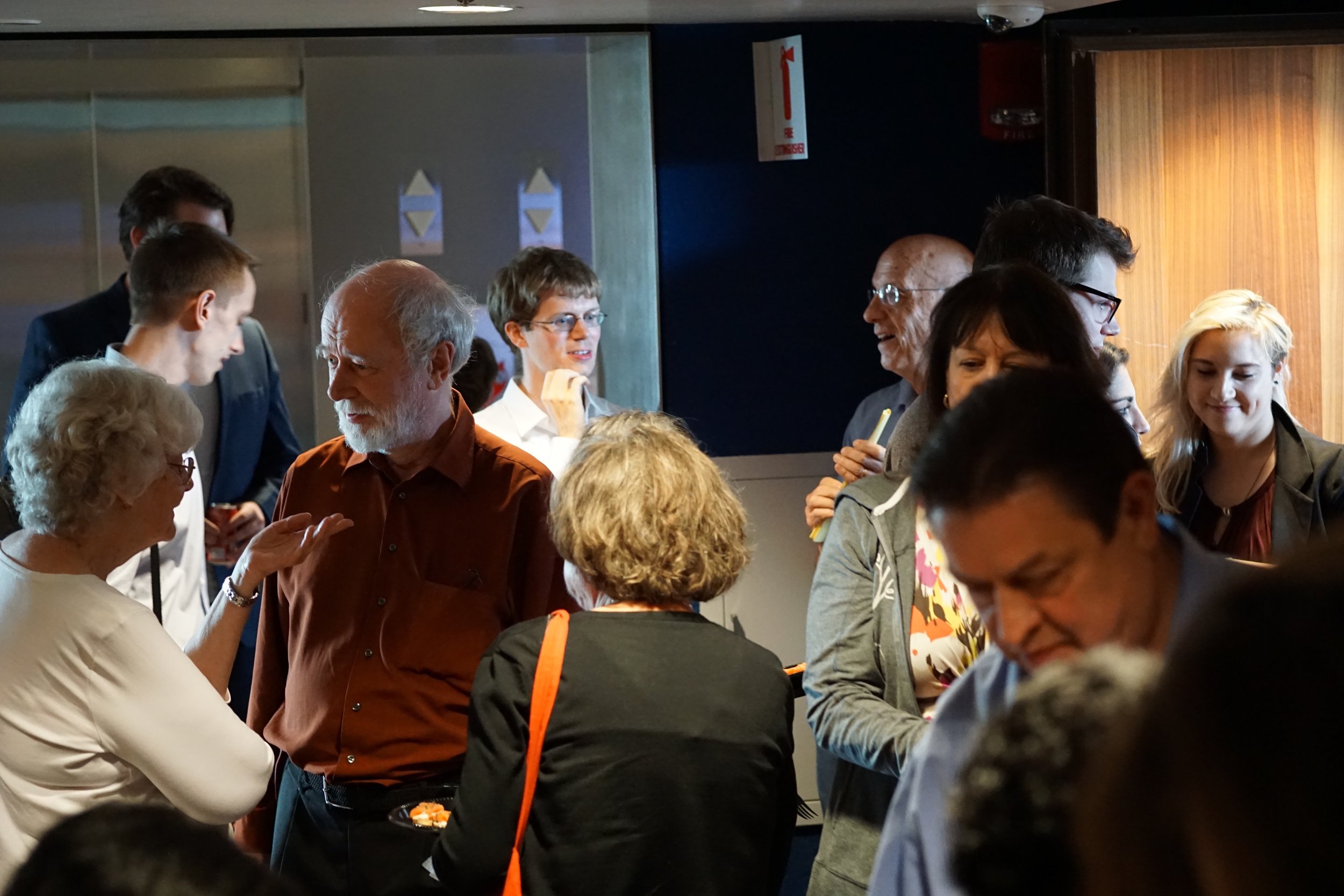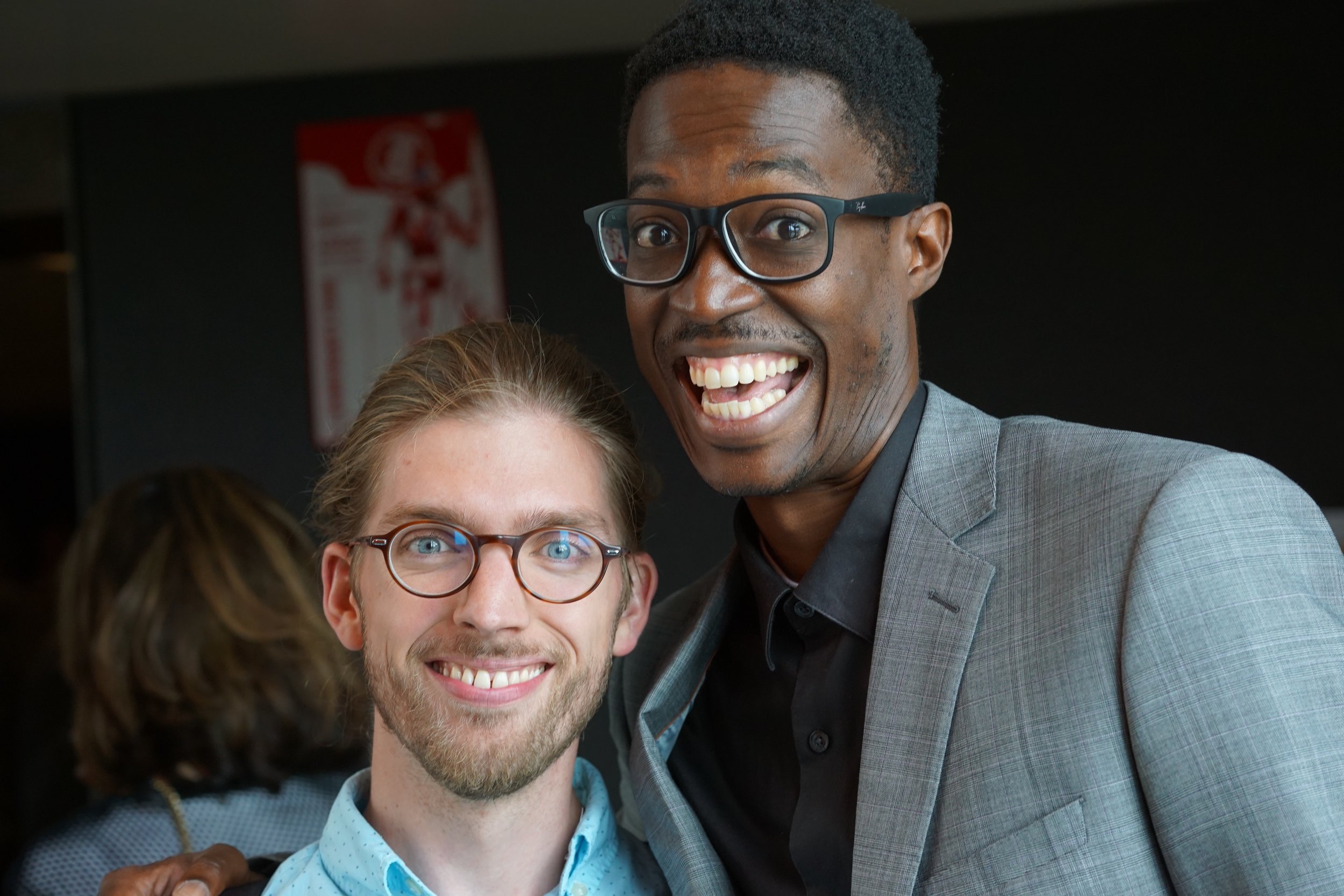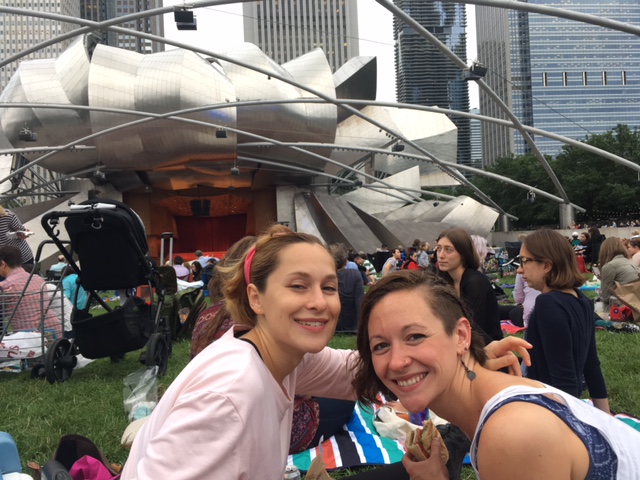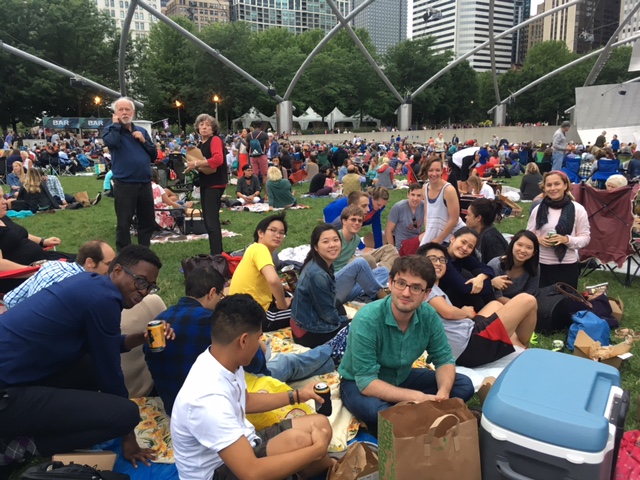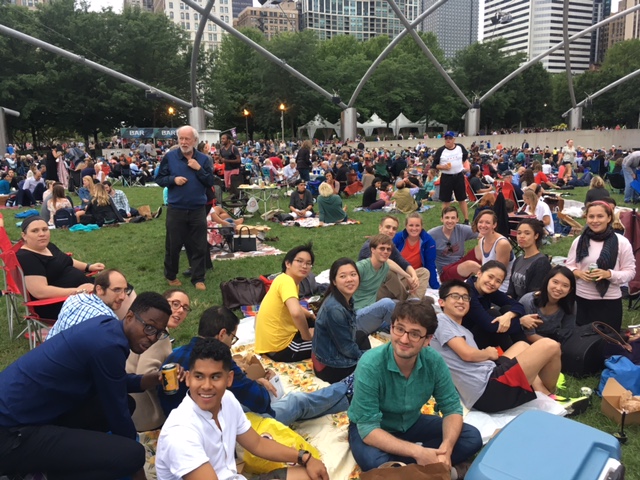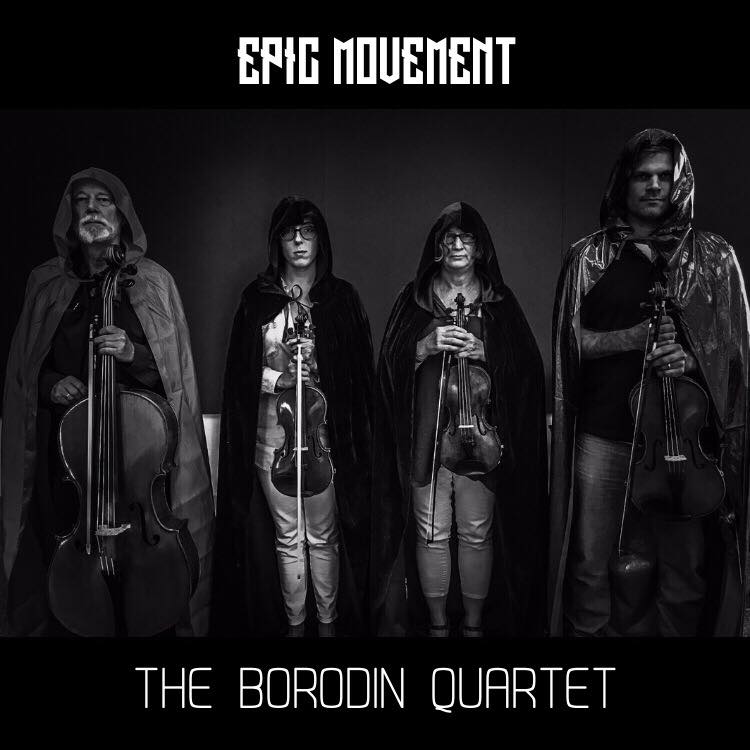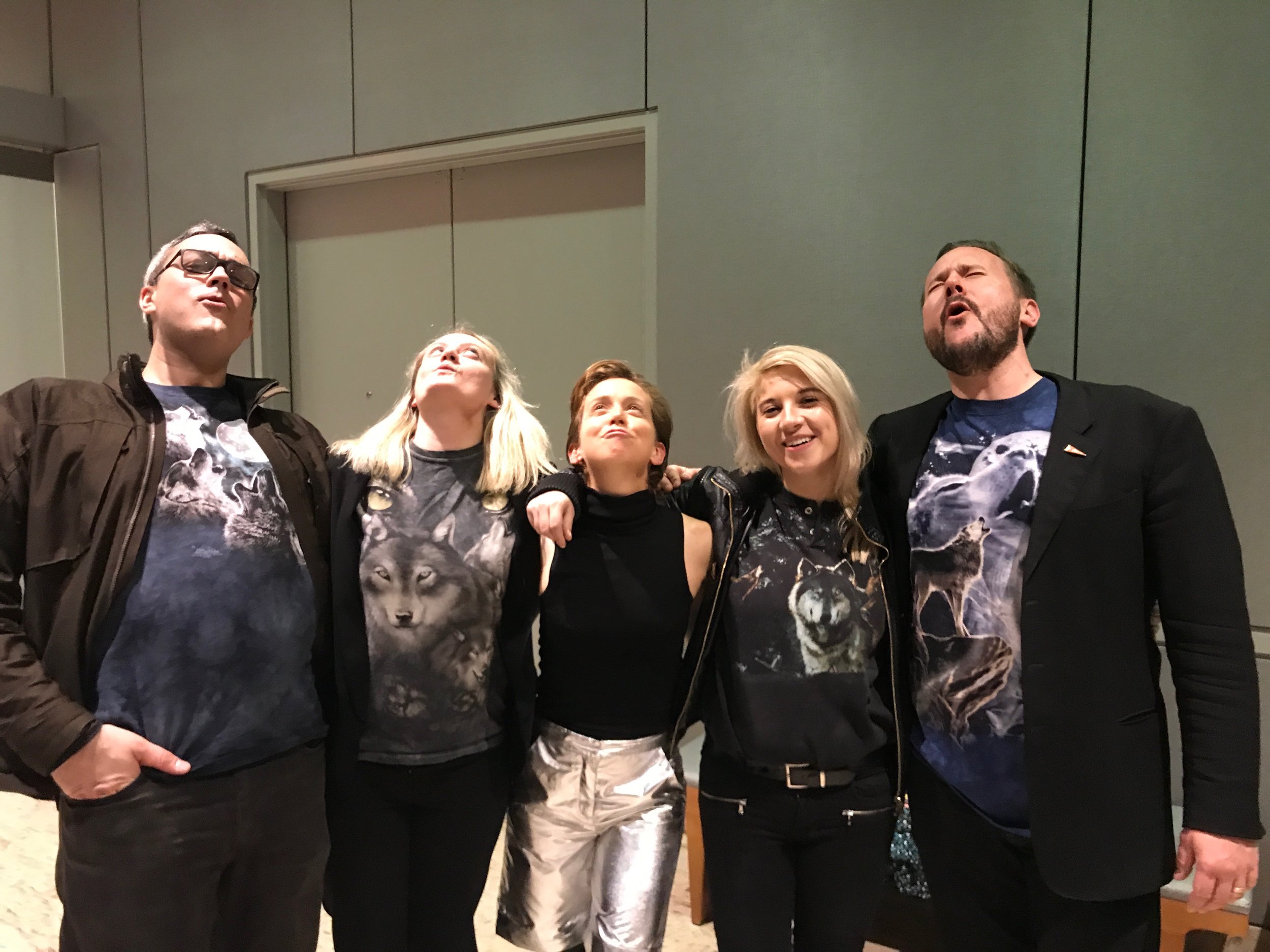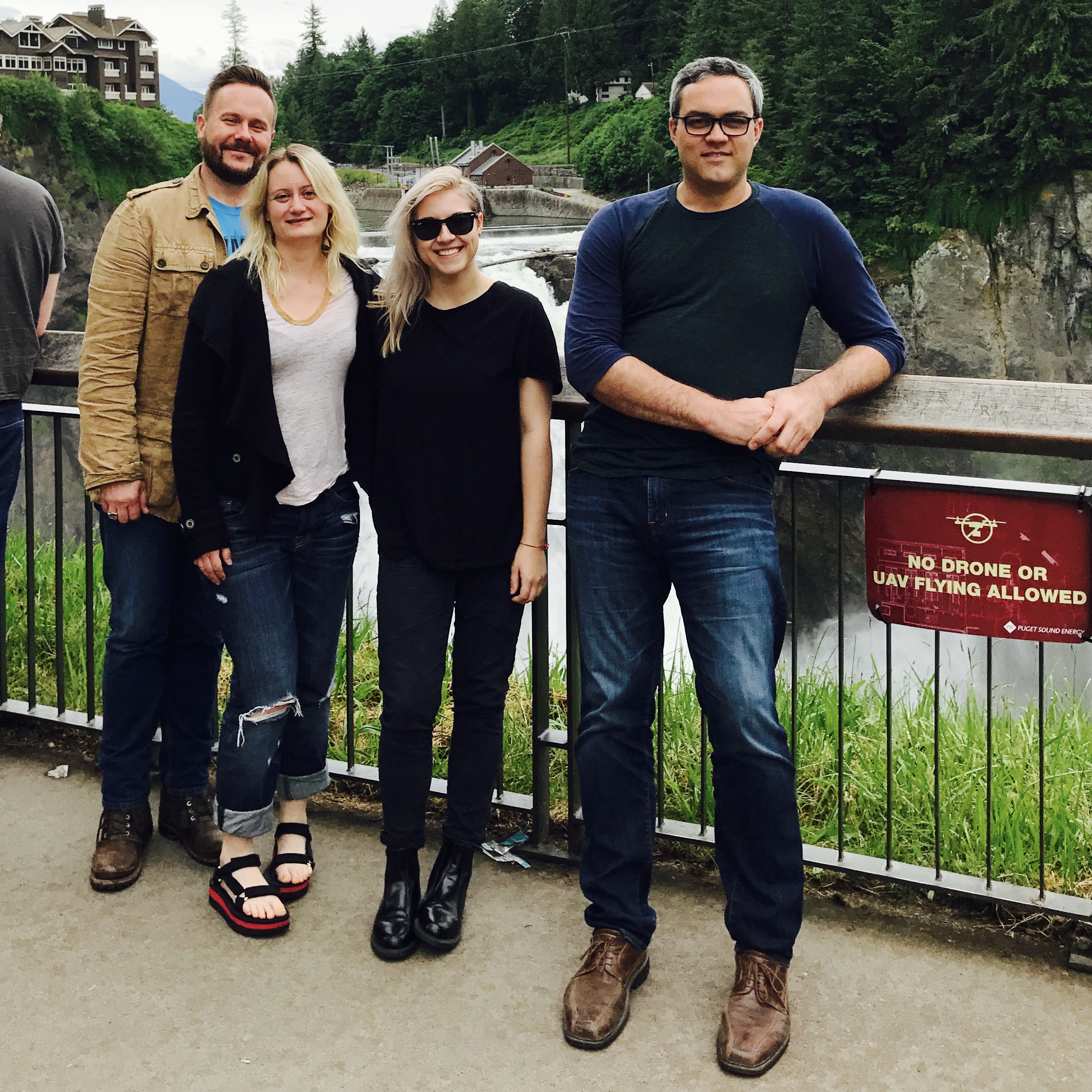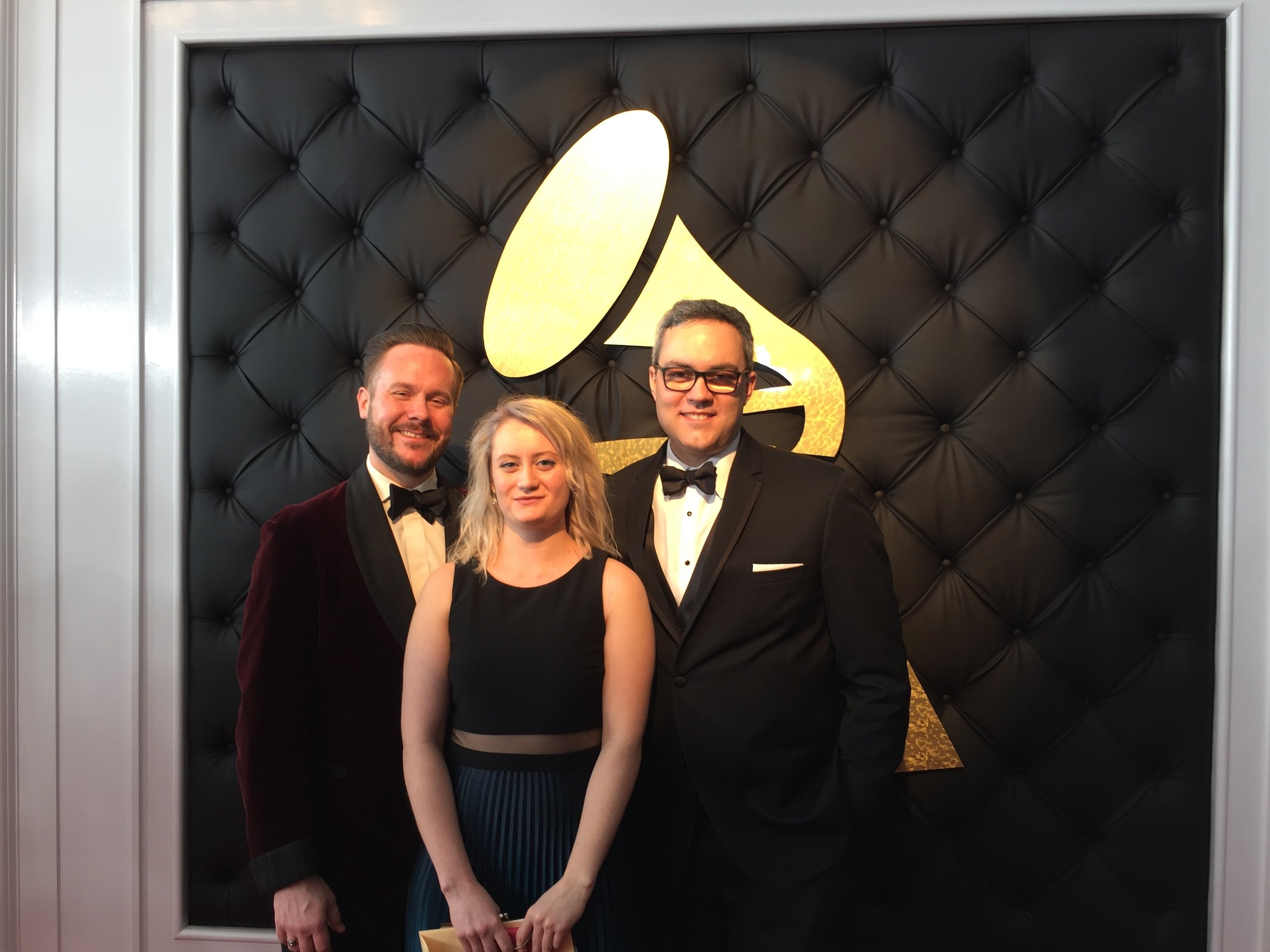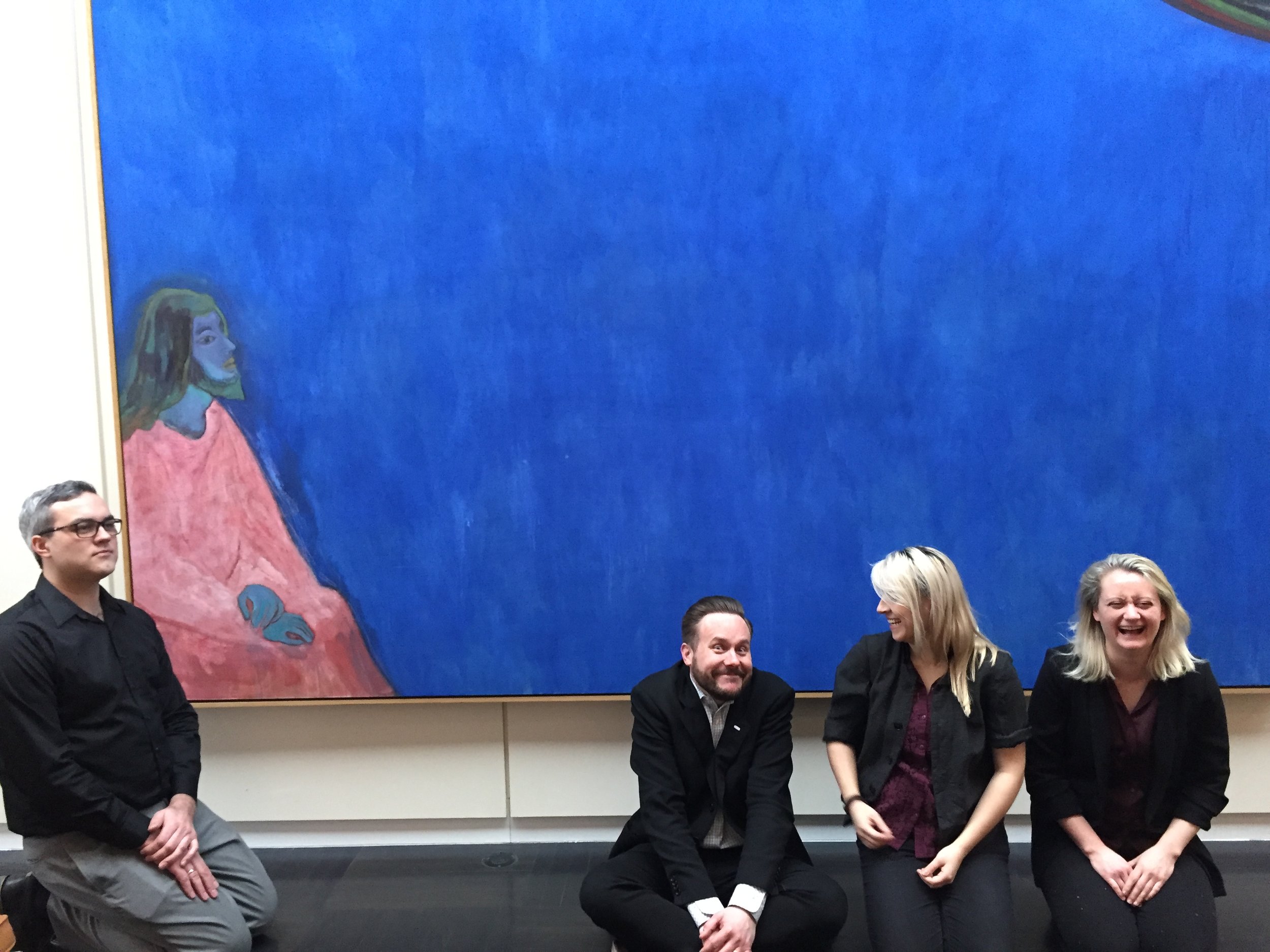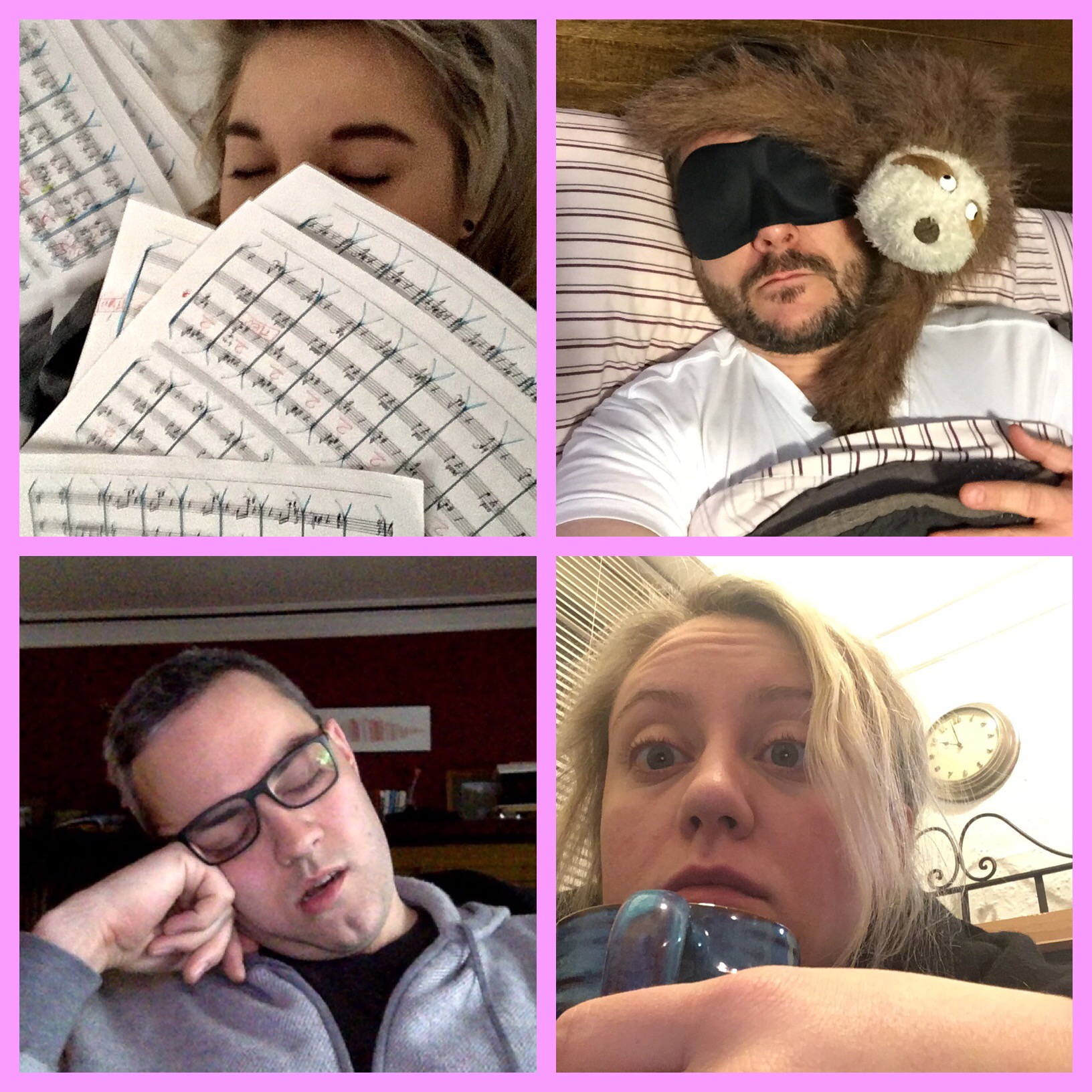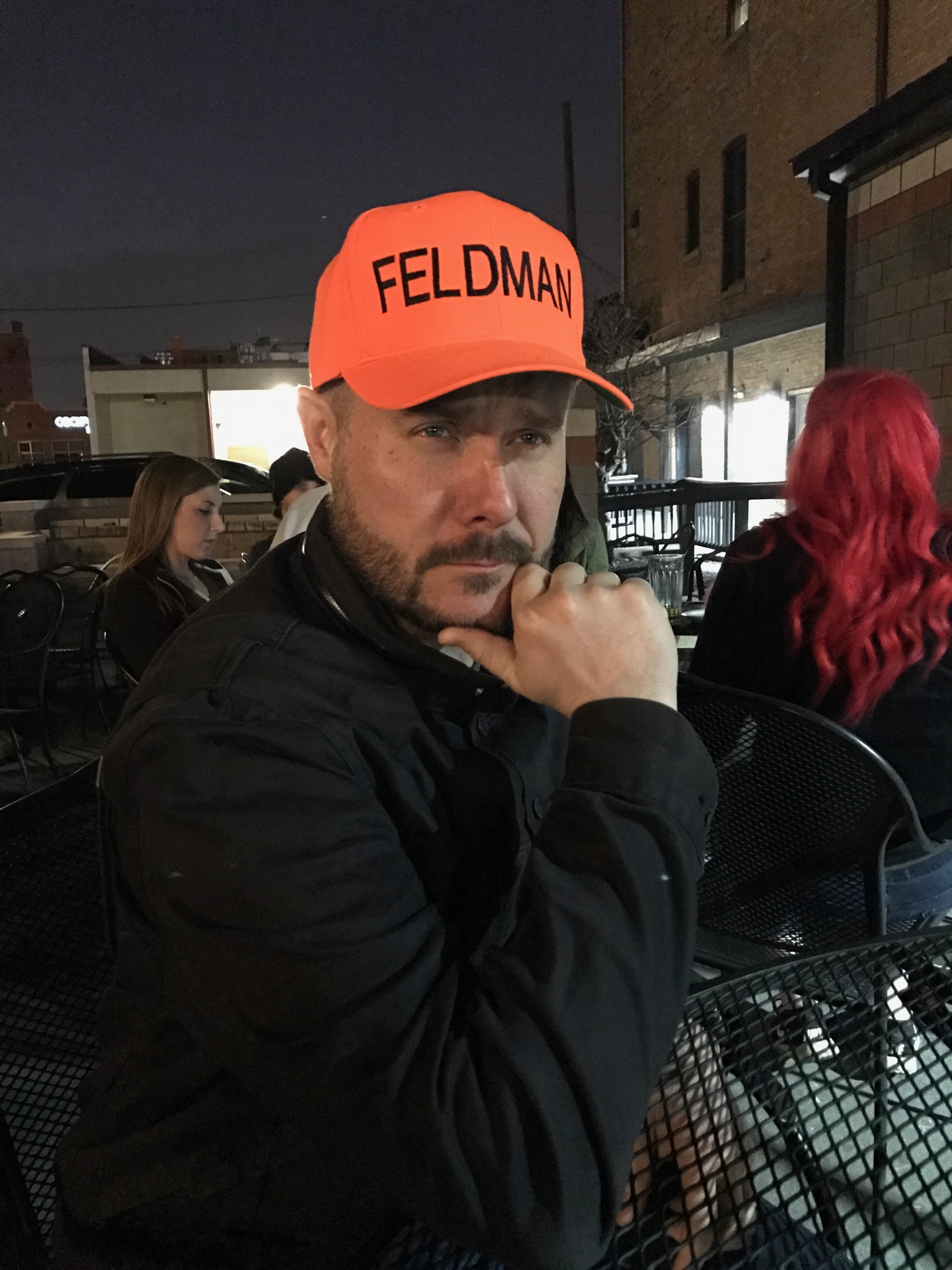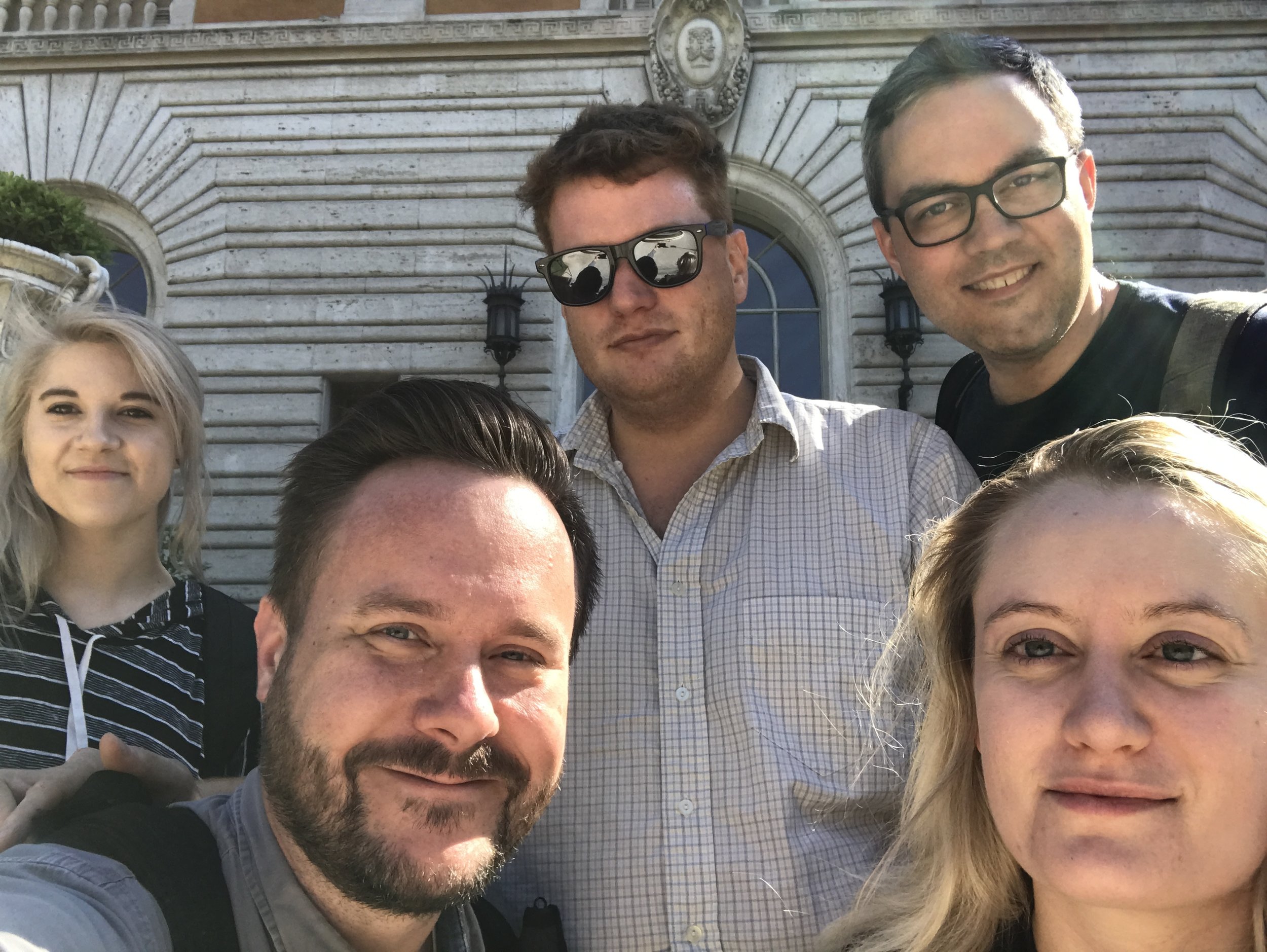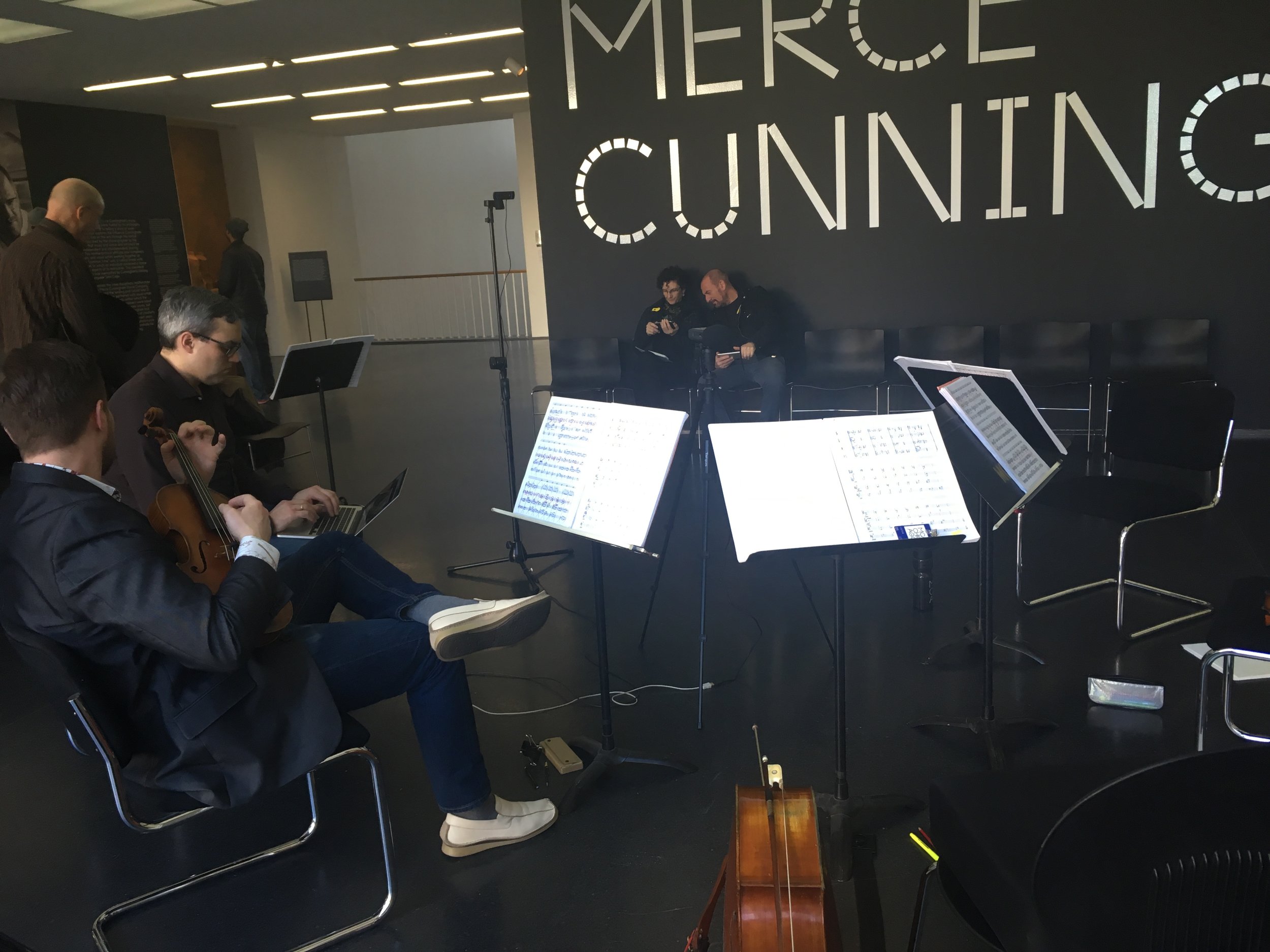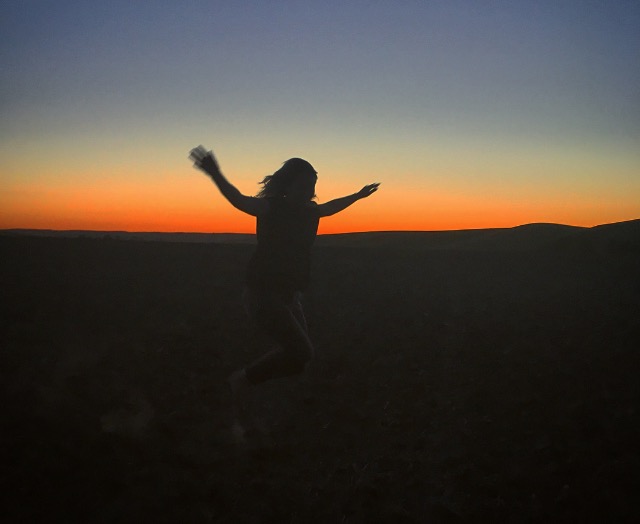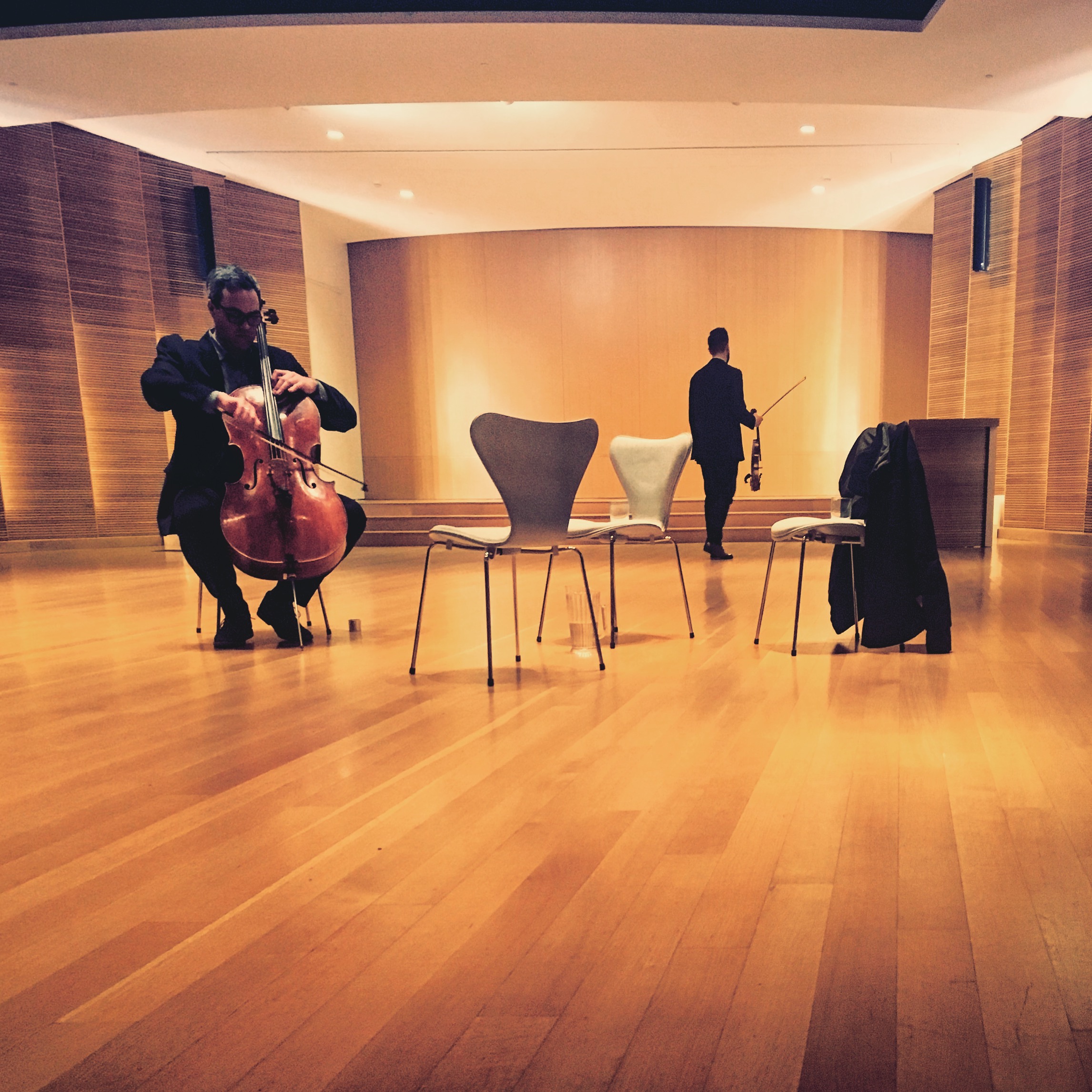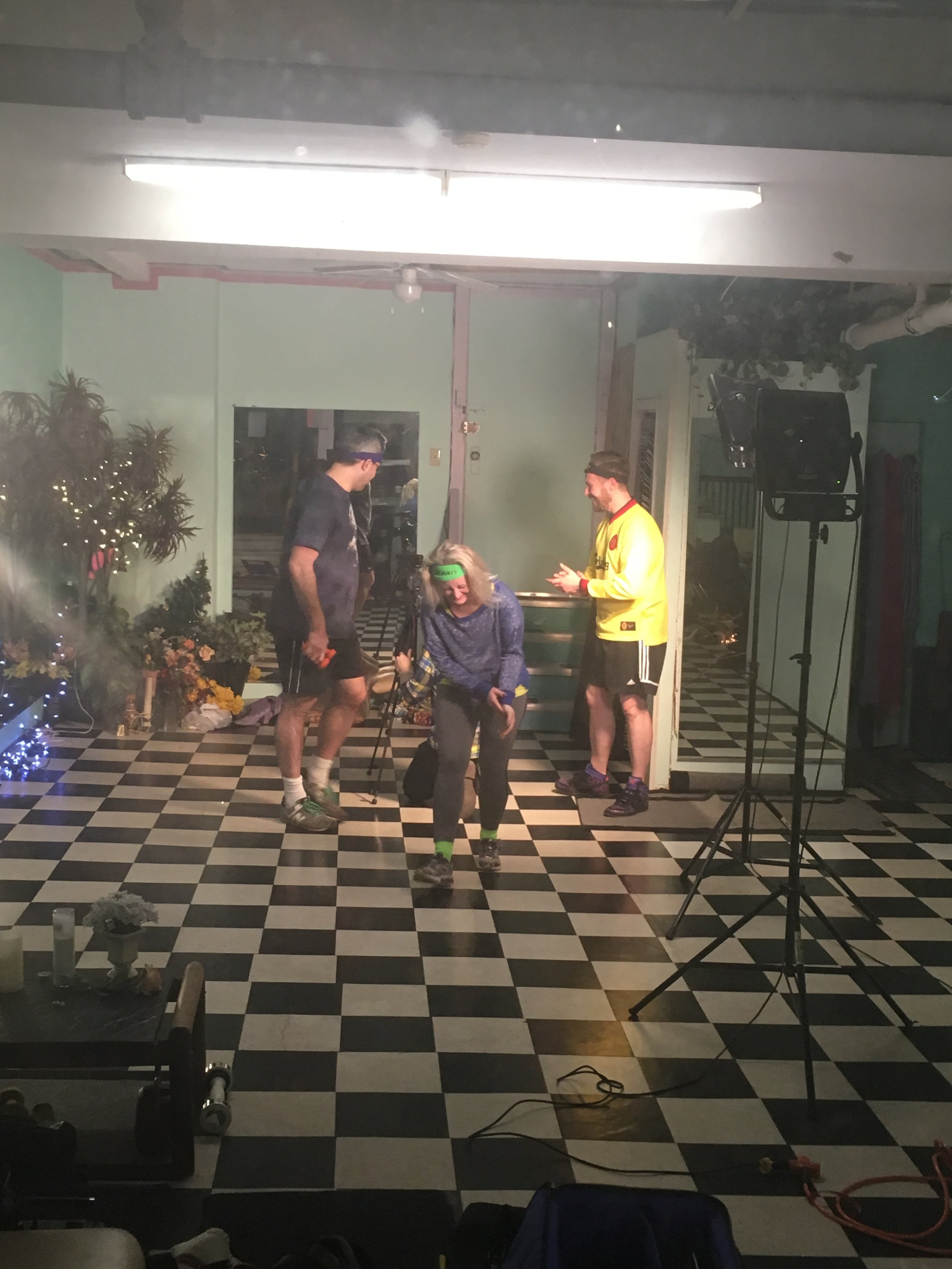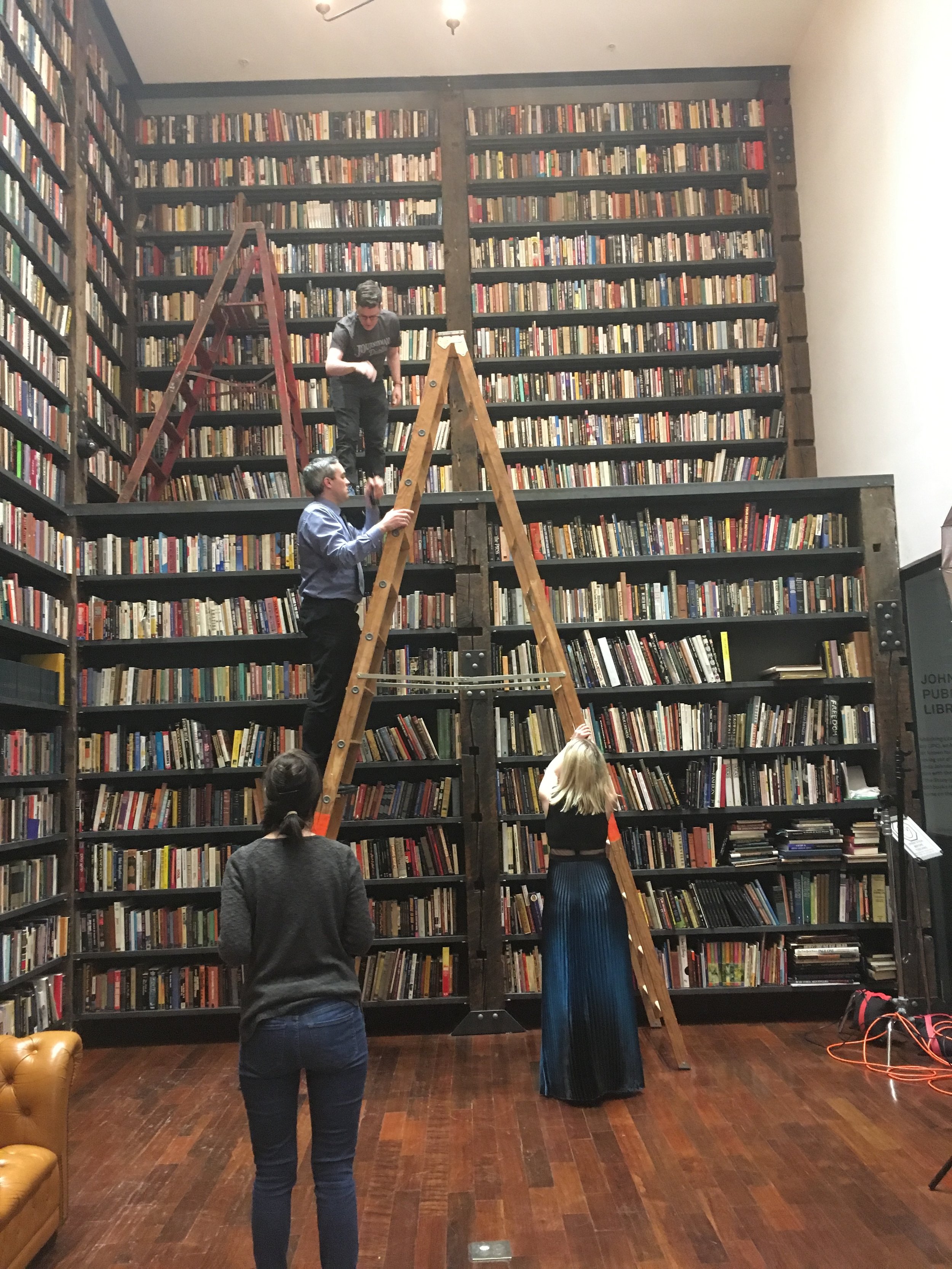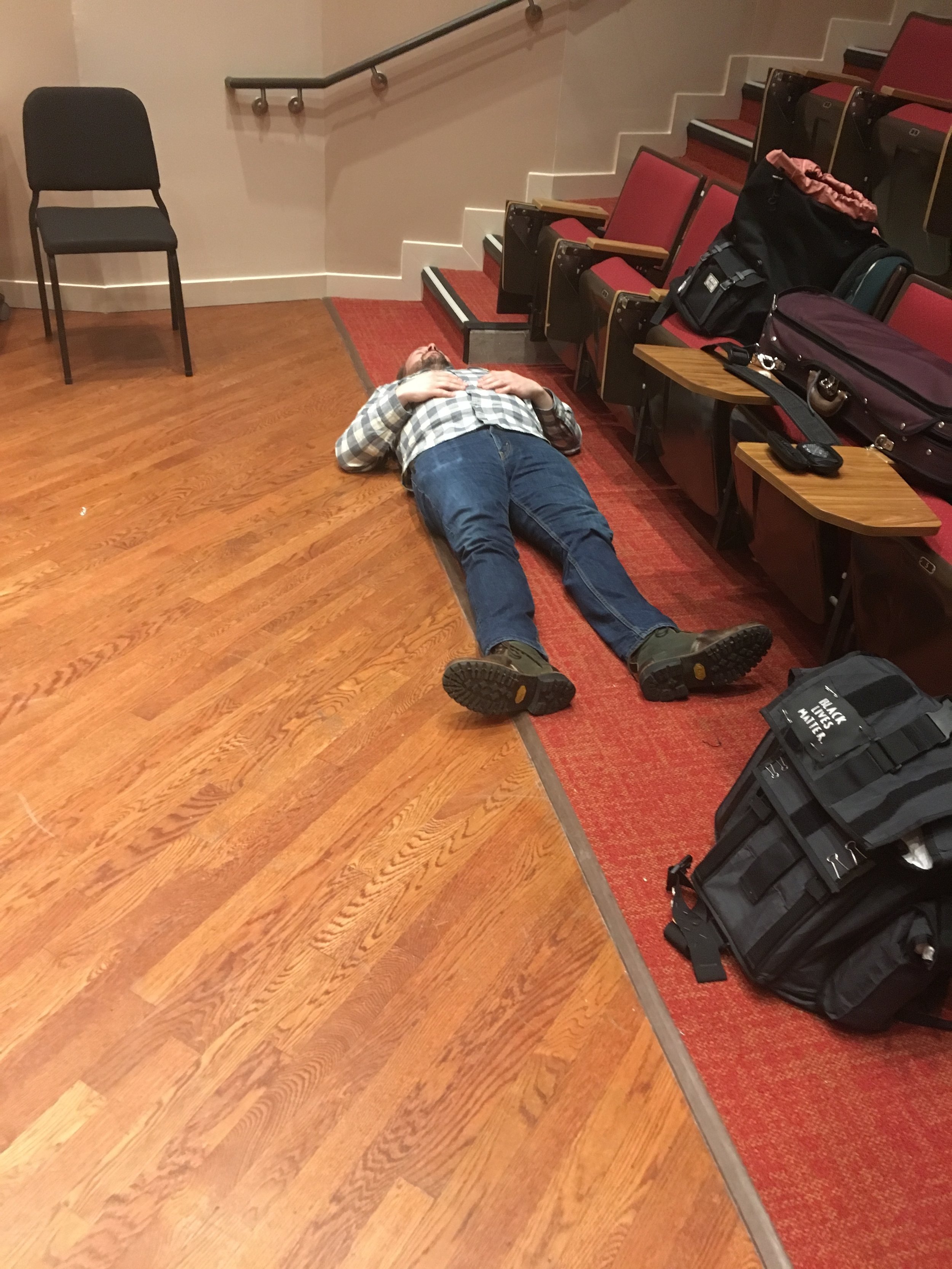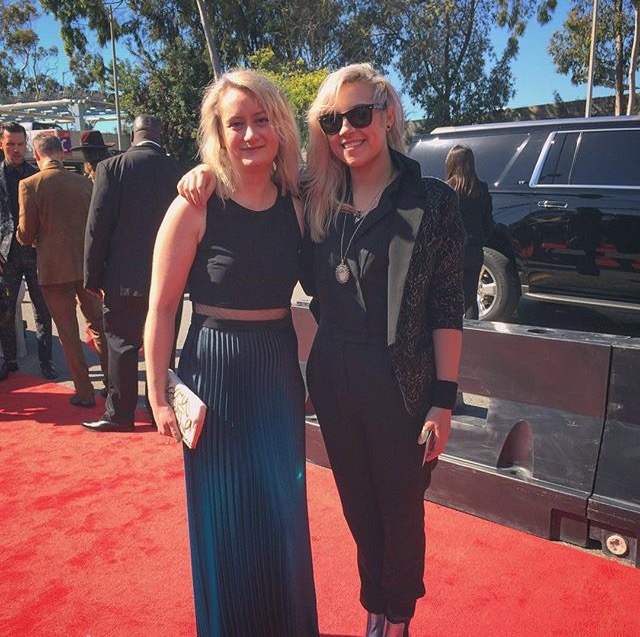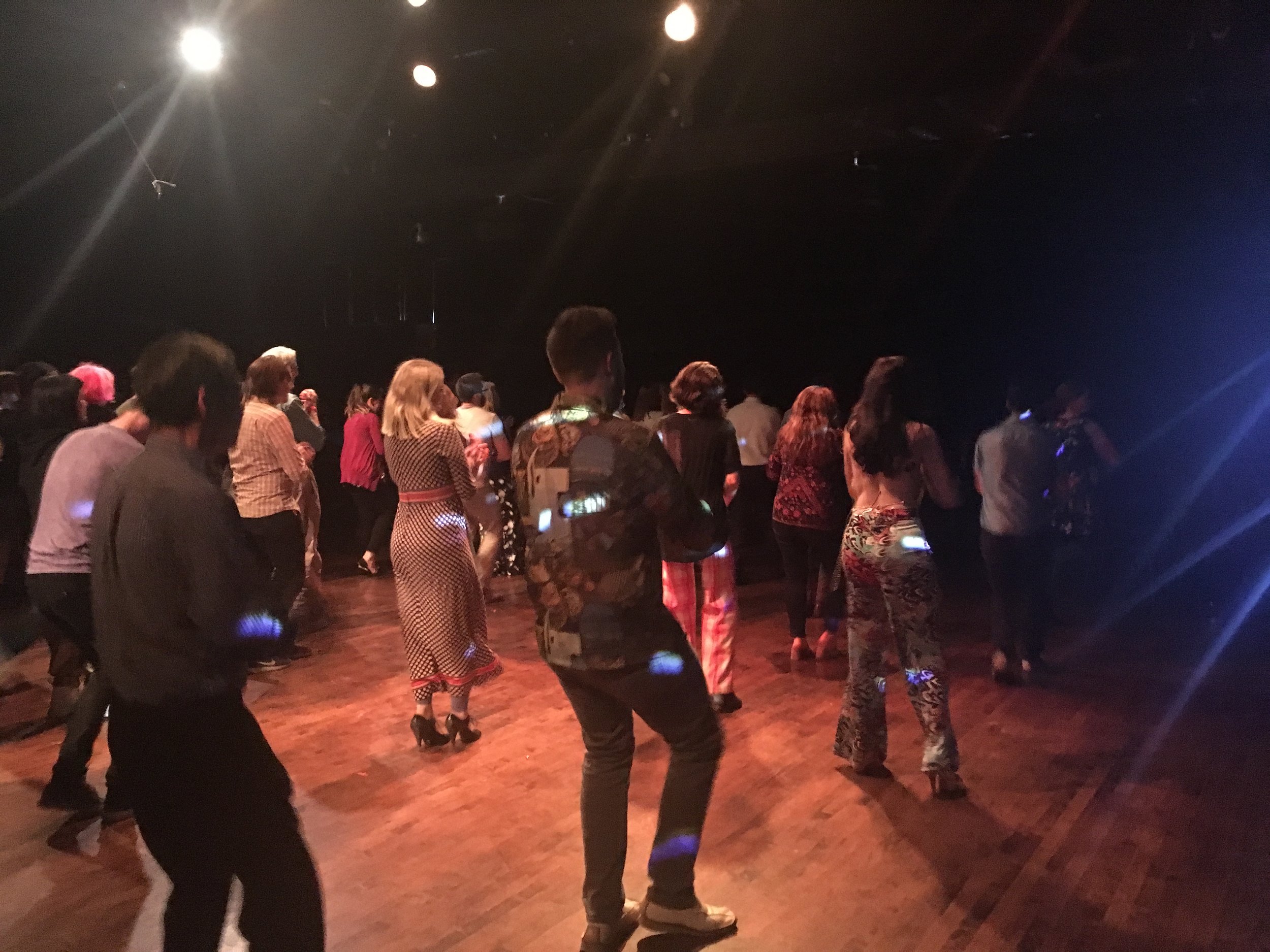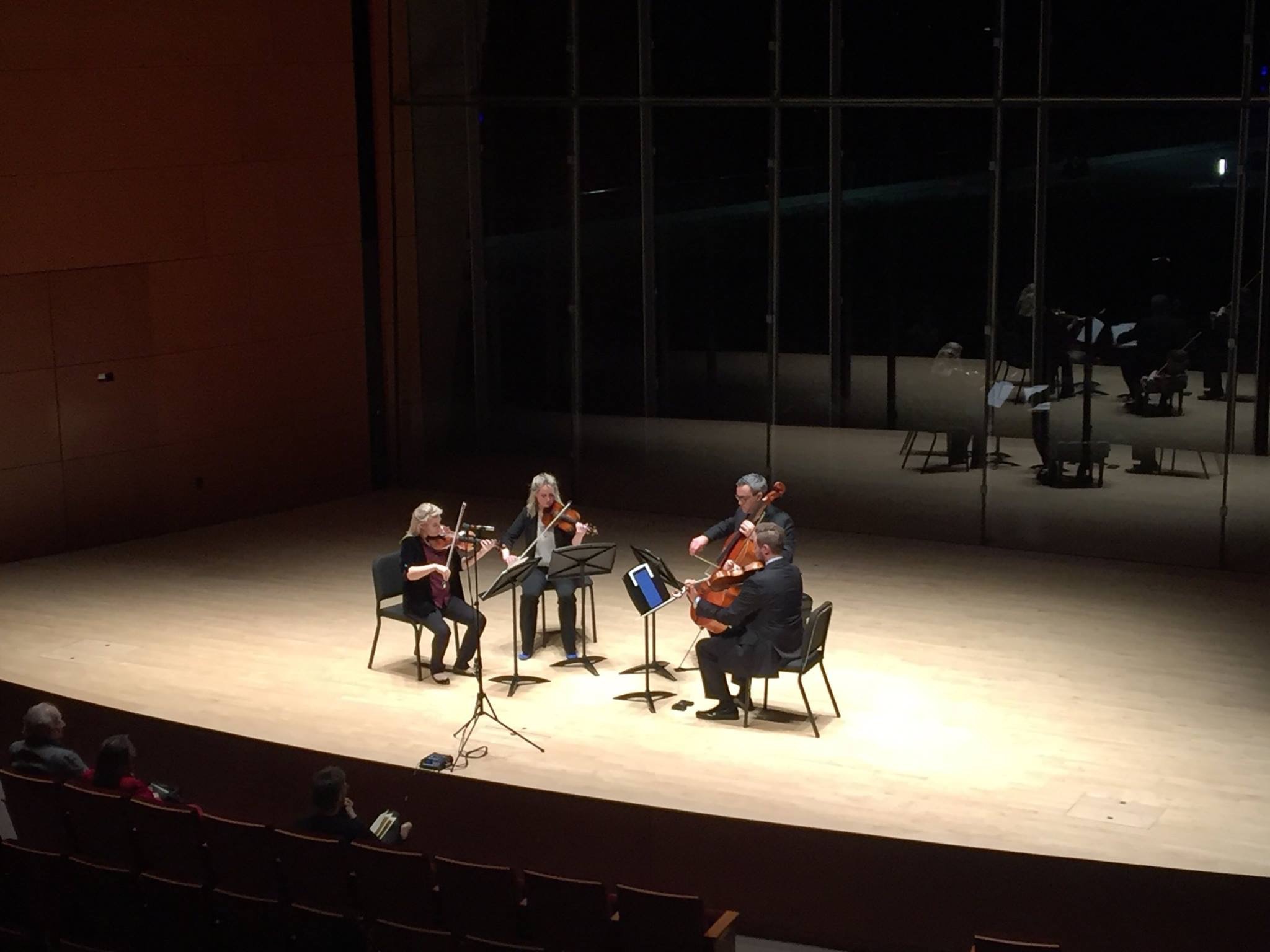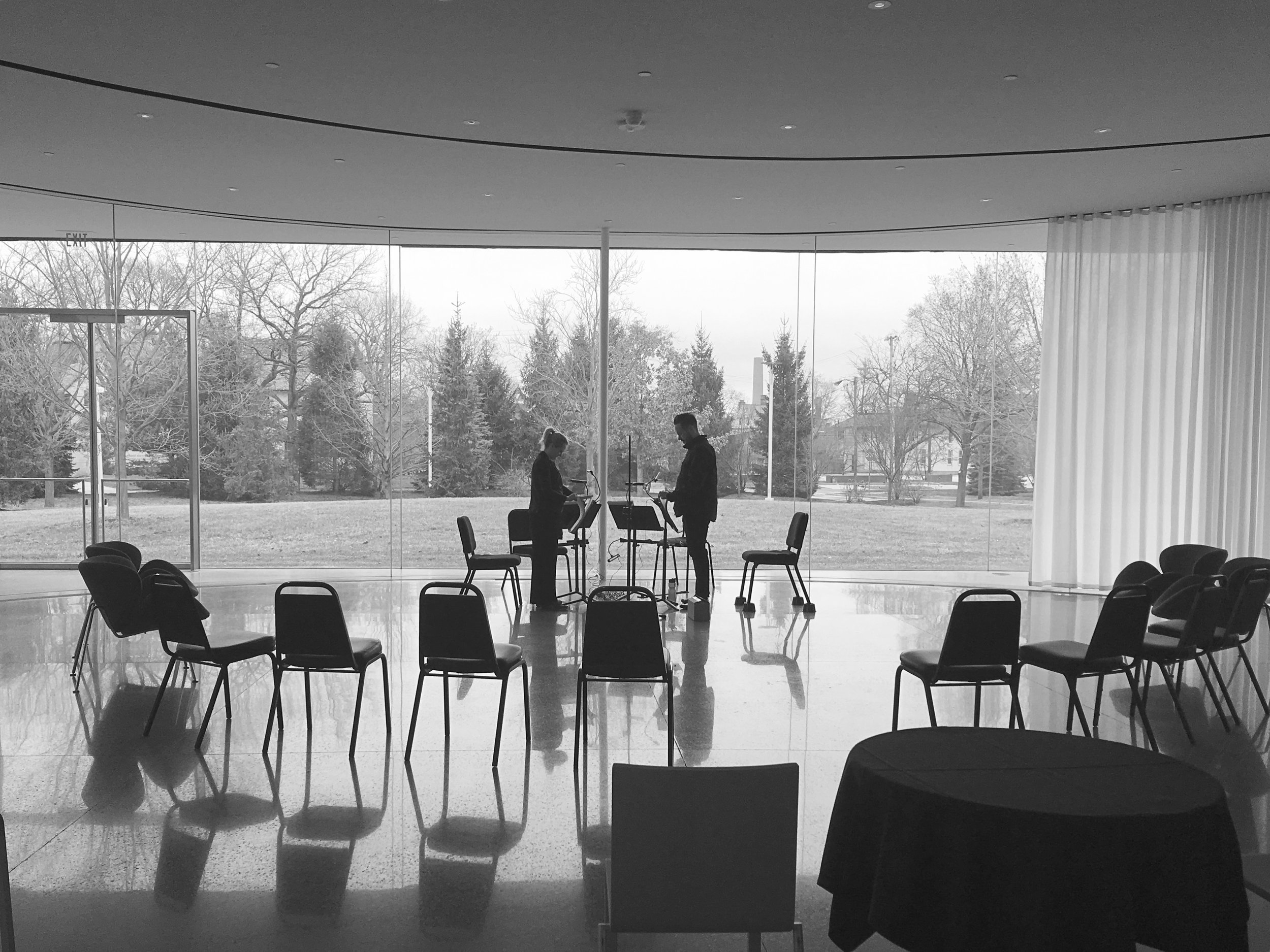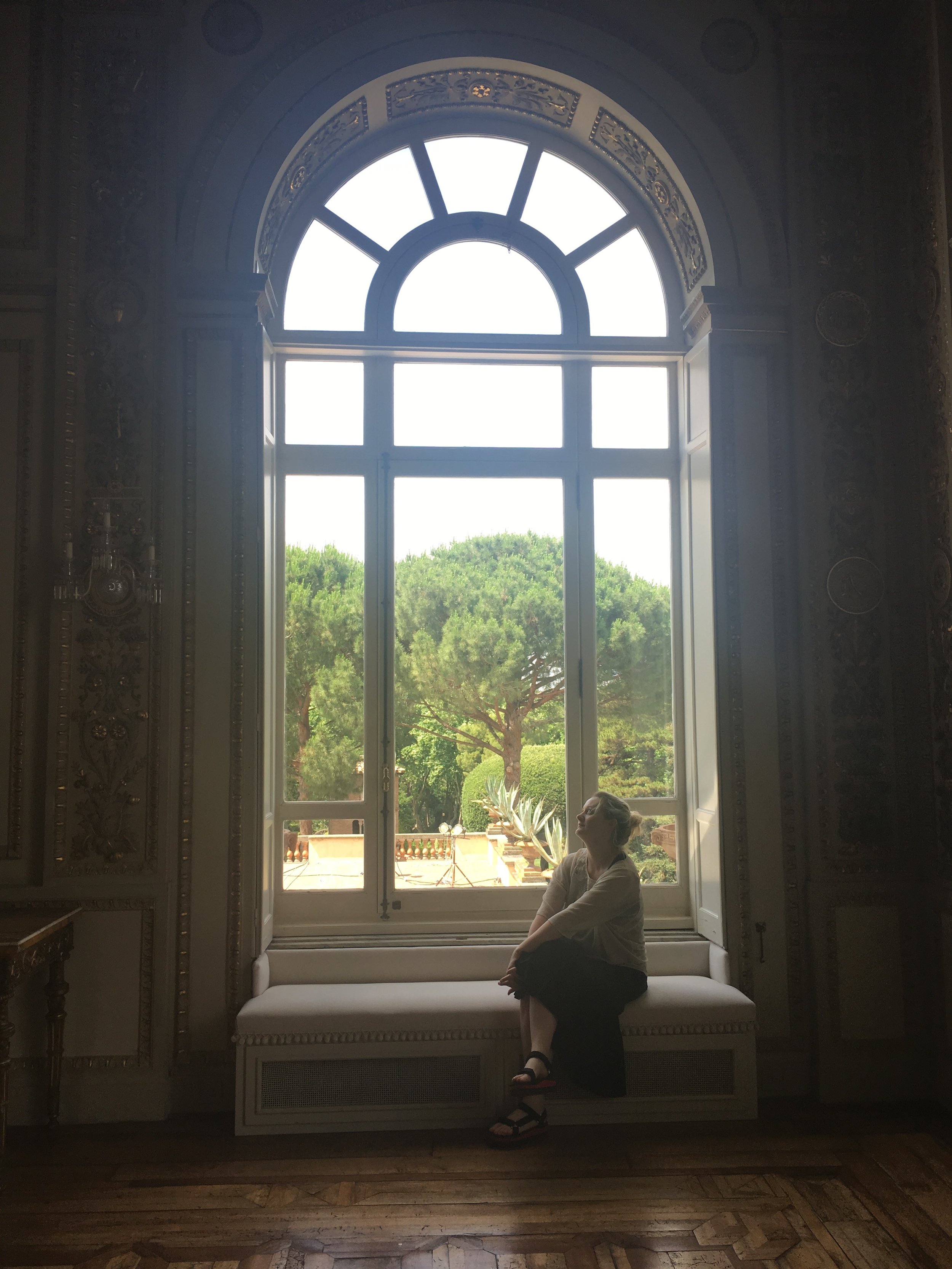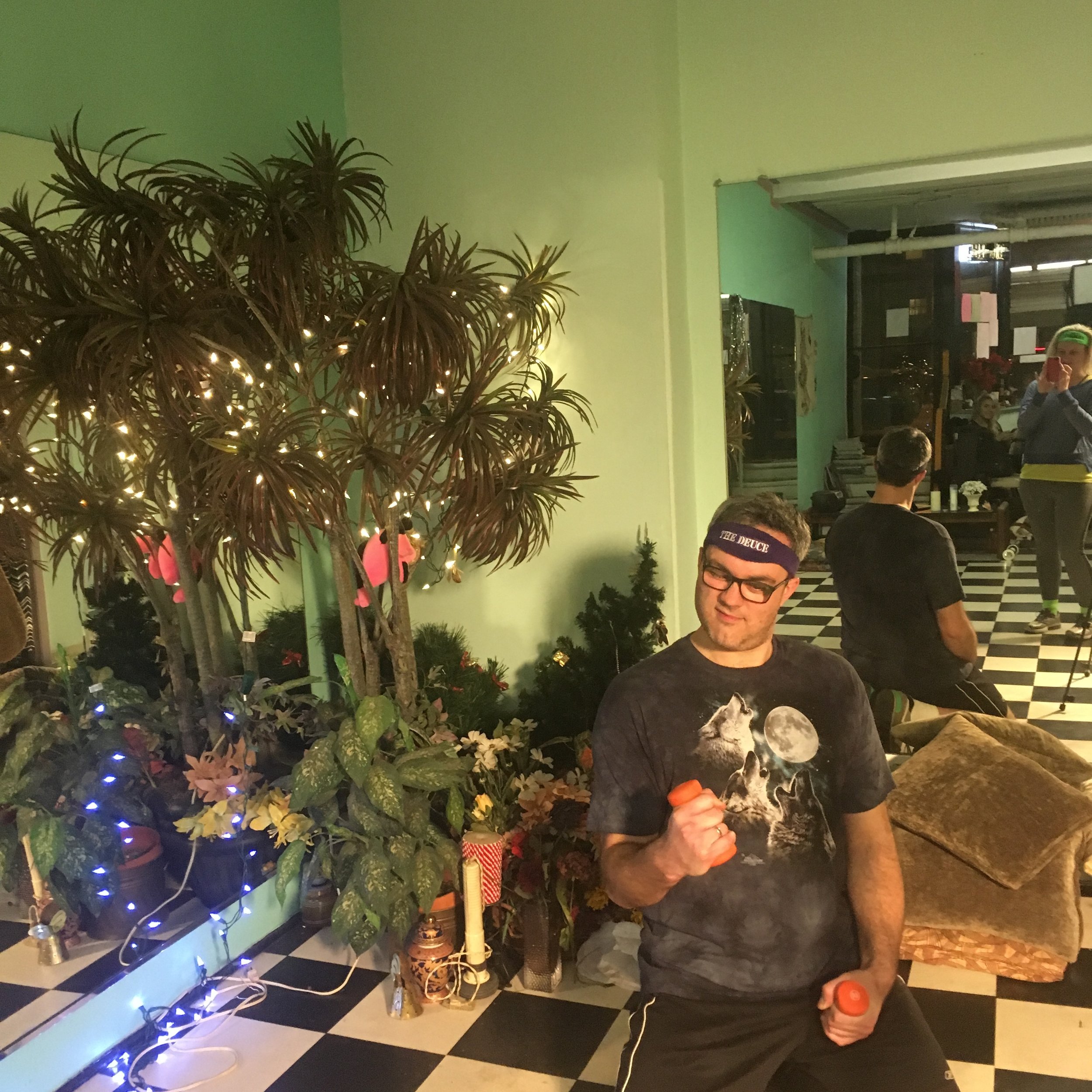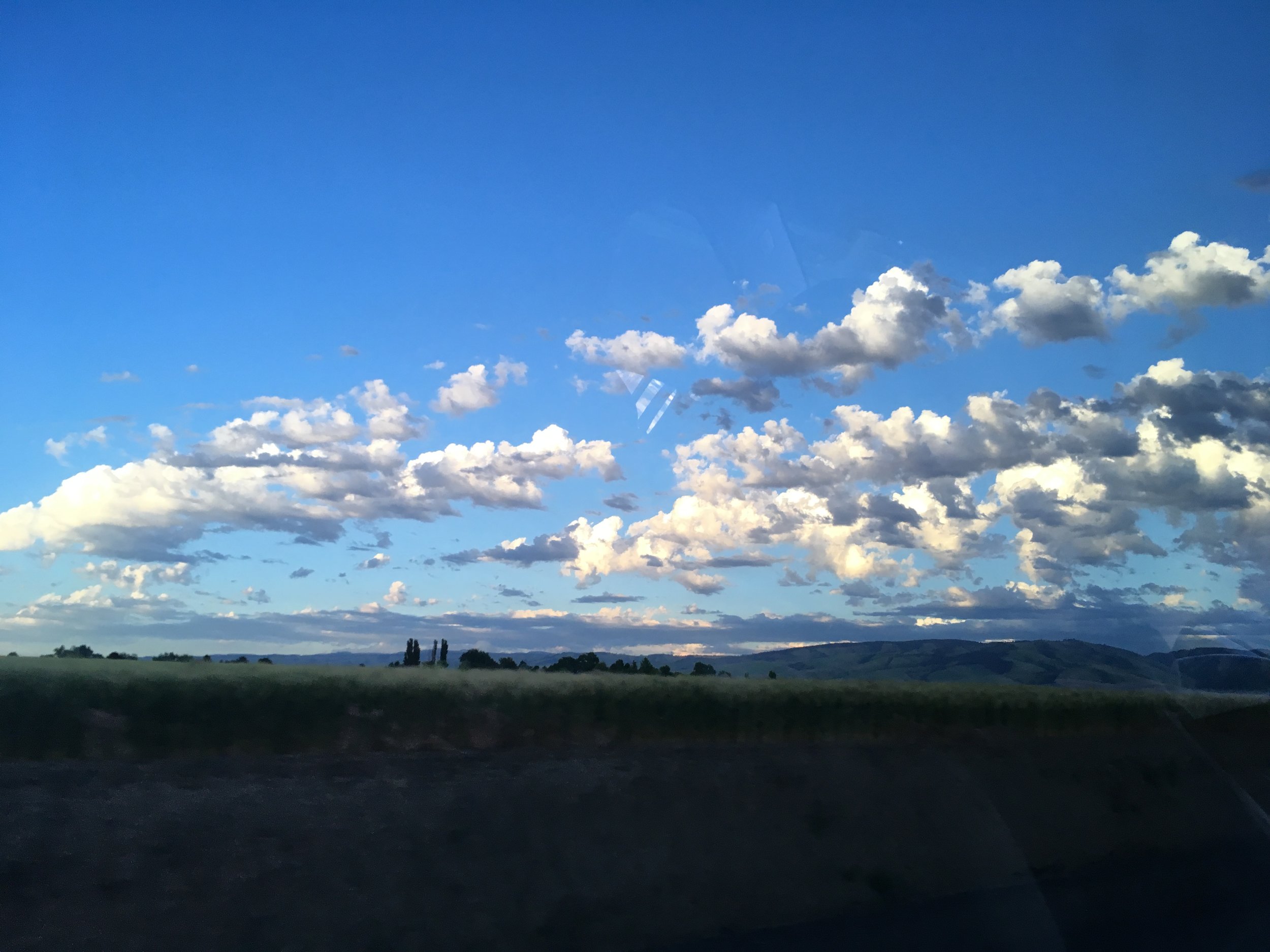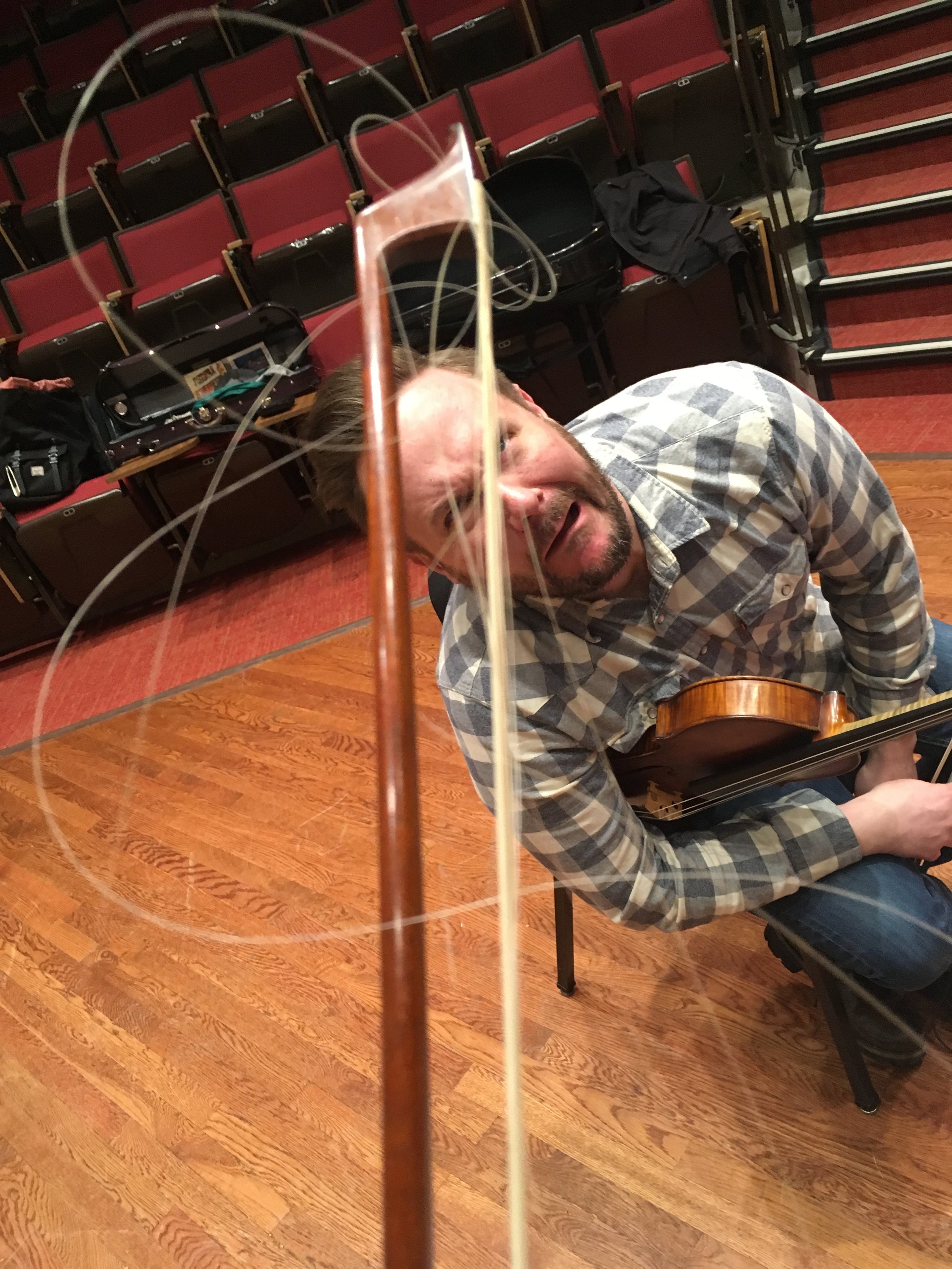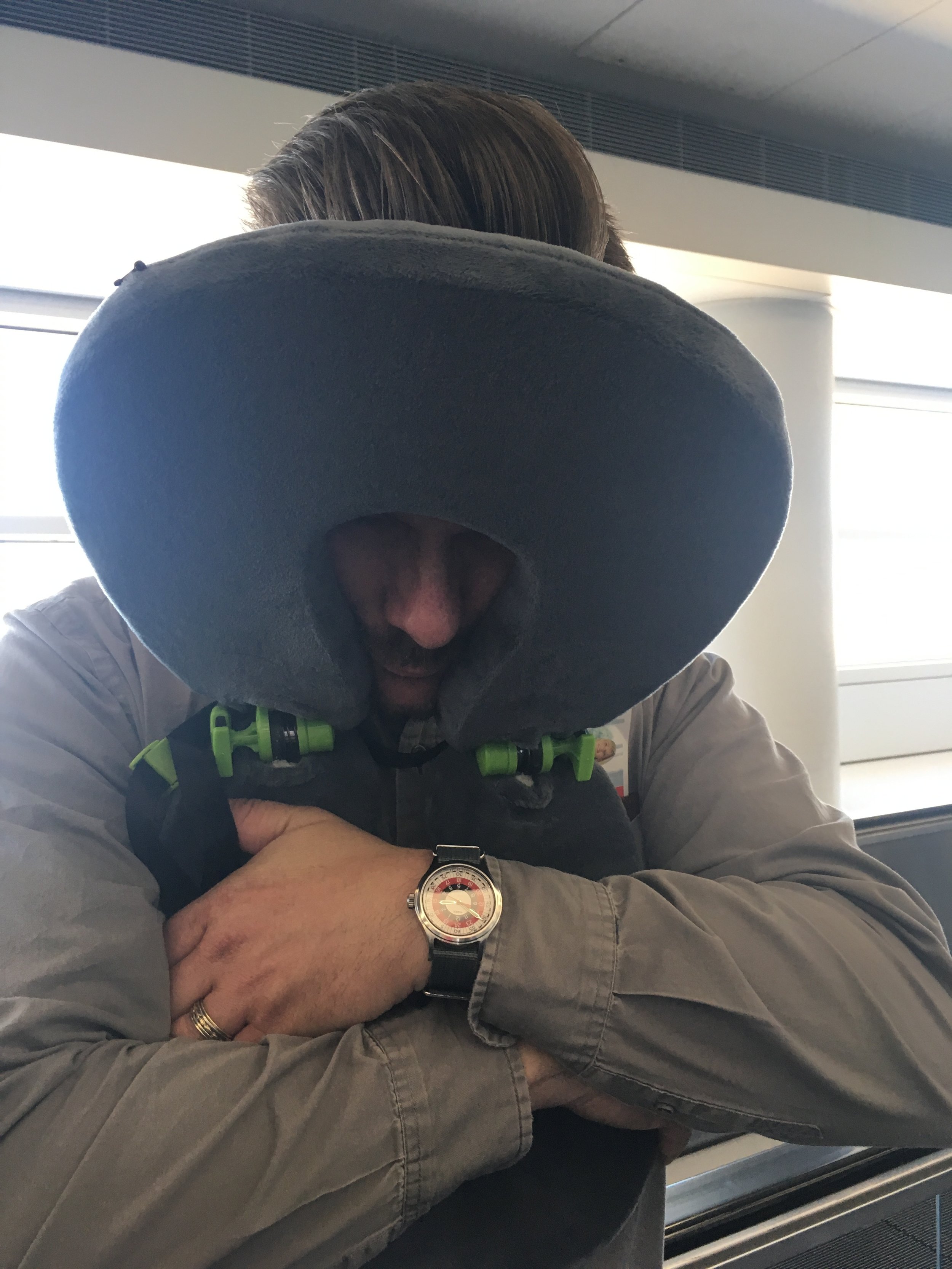“The Windy City is known for high buildings and broad shoulders, and there was plenty of altitude and attitude in Friday night’s program by the Chicago-based Spektral Quartet at National Sawdust in Brooklyn.
…
That’s where the attitude comes in. Throughout the program’s intense hour and a quarter, the composers demanded, and the Spektral players delivered, a flurry of radical string-playing techniques that put a charge under every bar, whether the mood was whimsical or ferocious.
…
The boldest moments came in George Lewis’s String Quartet 1.5: Experiments in Living, which the Chicago-born trombonist, composer, Columbia University professor, and former MacArthur Fellow put his African-American cards on the table in service of “the volatility of memory, resistance and hope,” as he put it in a program note.
…
A quieter kind of “experiment” followed in Samuel Adams’s Quartet Movement for string quartet and three snare drums, composed last year amid the press of Adams’s duties as composer-in-residence at the Chicago Symphony Orchestra. The drums lay on their sides on the stage and were activated electronically by small loudspeakers, producing a variety of ambient sounds—a surf-like throb, an undulating haze, an astringent hiss—for the piece’s six brief sections.
Each section began with the same down-up violin phrase, then went on to explore acoustical effects, such as notes going slowly in and out of unison to produce shimmering “beats,” and rhythmic suggestions, culminating in an active, finale-like closing section and a fadeout for the drums alone. The quartet brought the same fierce concentration and attention to detail to this gentle piece as it had to the dramatics of the Lewis work.
…
That set the stage for some serious fun in Anthony Cheung’s playfully-titled The Real Book of Fake Tunes, an allusion to the “fake books” and lead sheets that have been the jazz player’s friend for generations. The piece featured the talents of flutist Claire Chase–Brooklynite, new-music specialist, and the second MacArthur Fellow to appear on this program–who both inspired the piece and joined the quartet onstage Friday.
…
The image of three composers and five players taking a bow served to remind the onlooker that, ideally, new “classical” music is not just a matter of imaginatively realizing the composer’s intentions—although the Spektral Quartet and guest Chase certainly did that—but of being present at the creation, and a vital part of it.”
Read the entire article here



